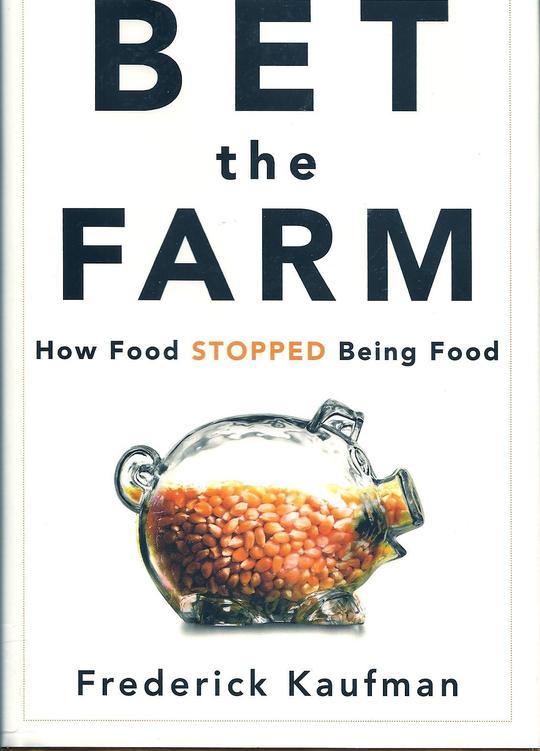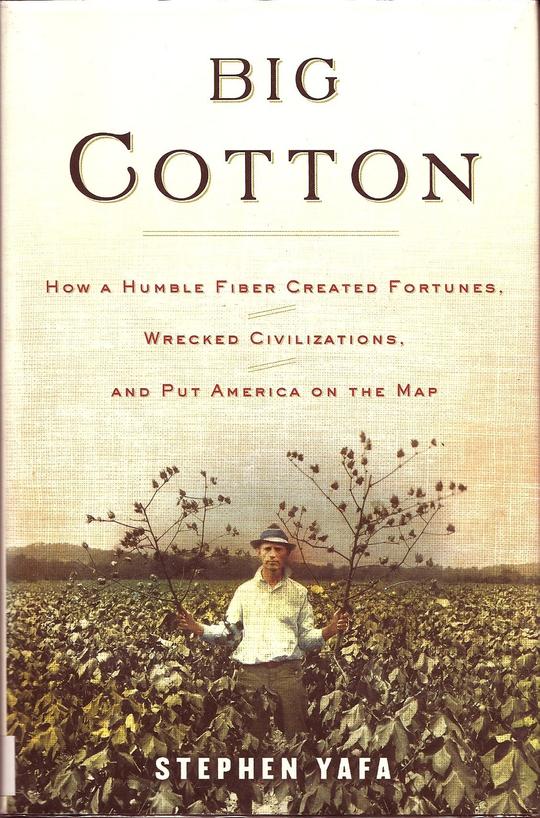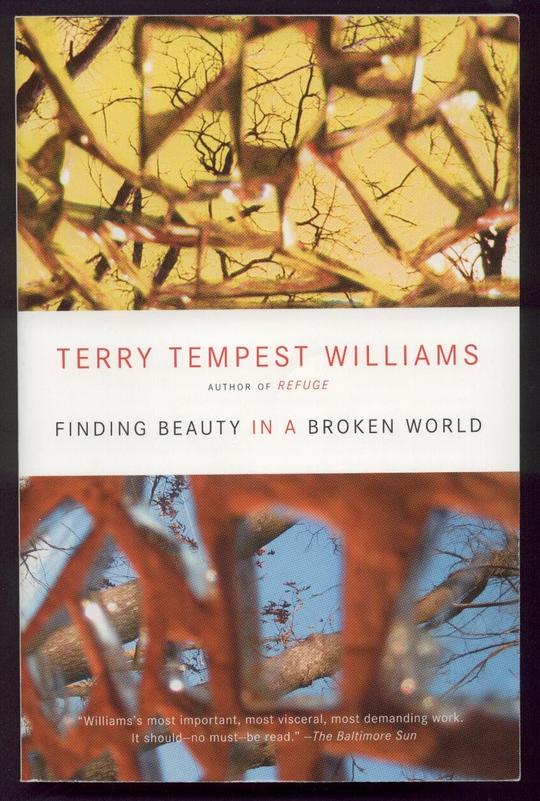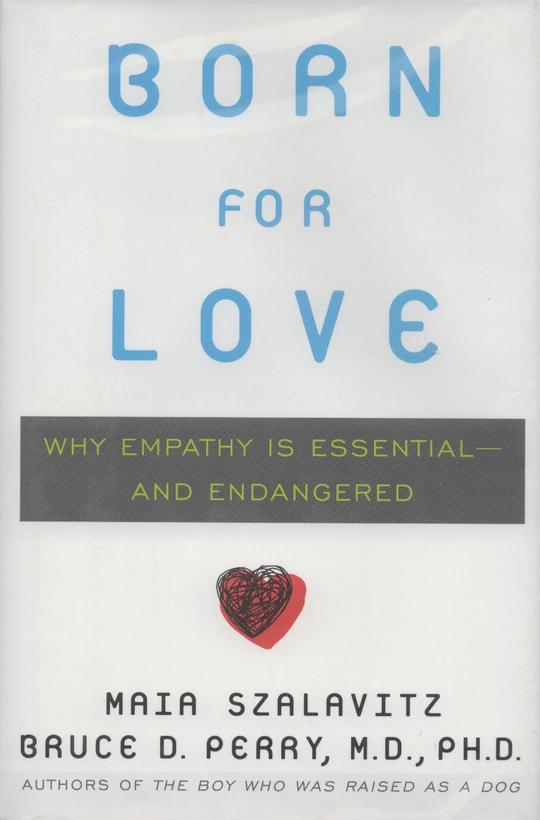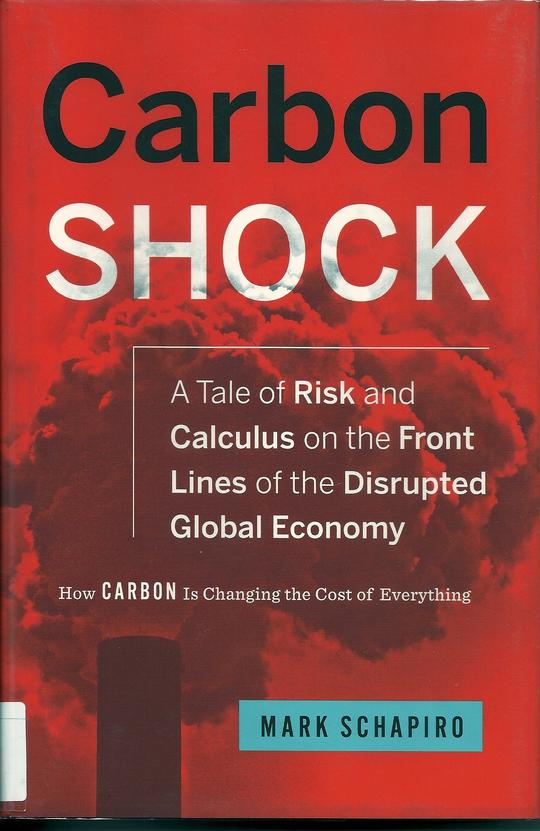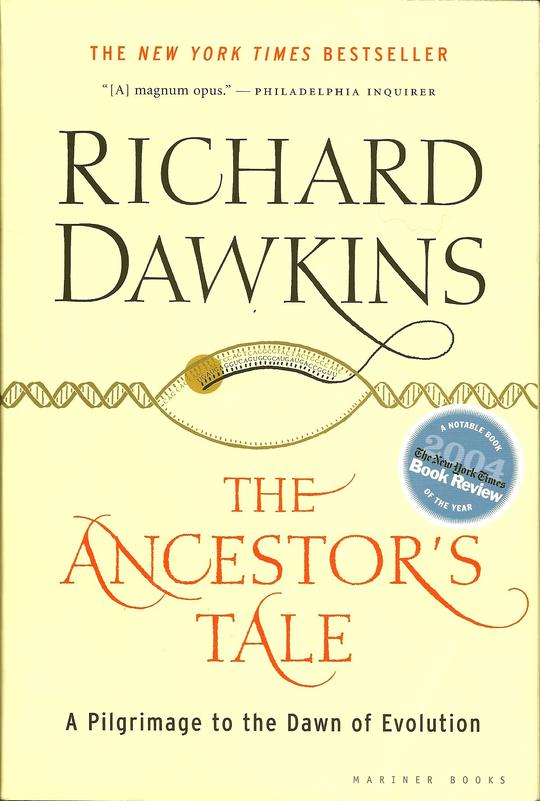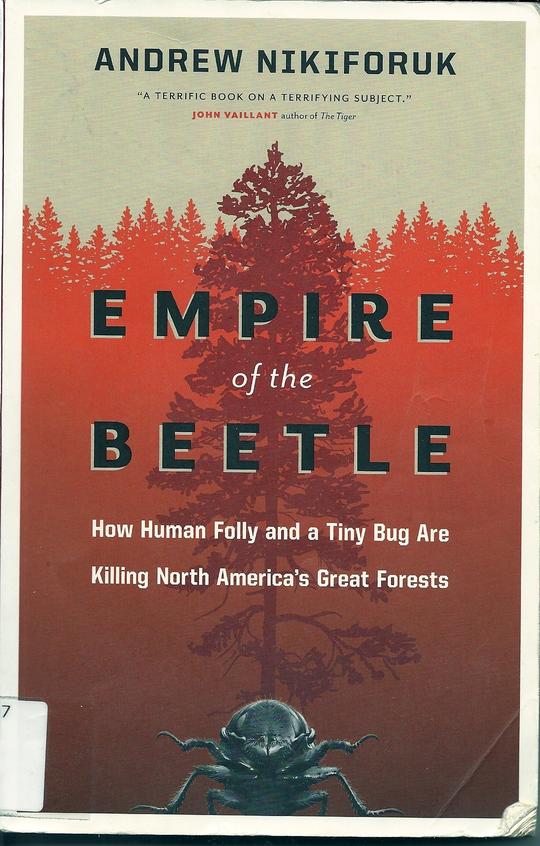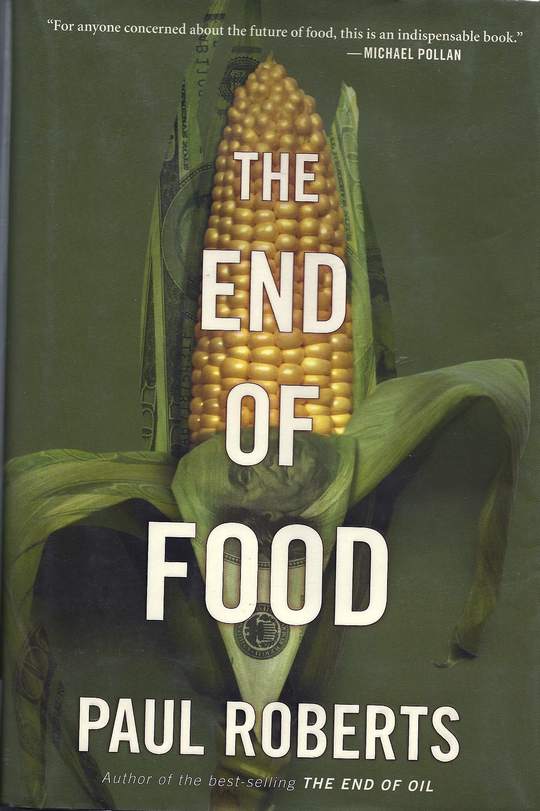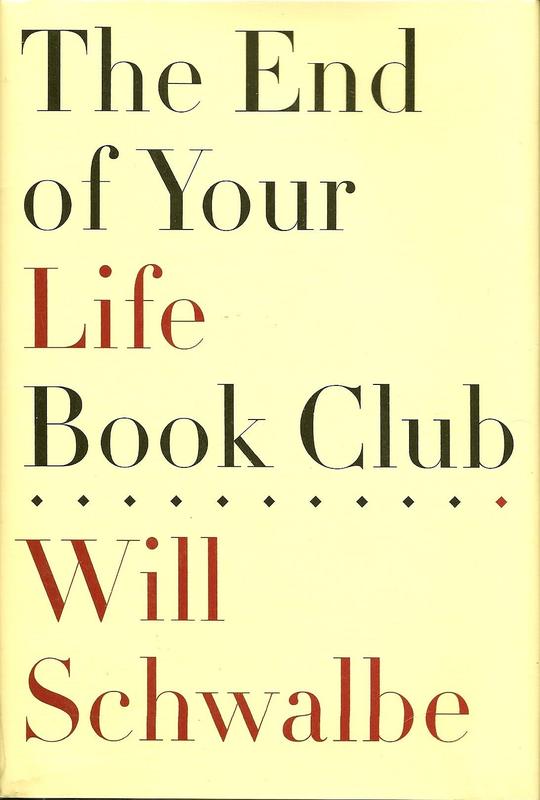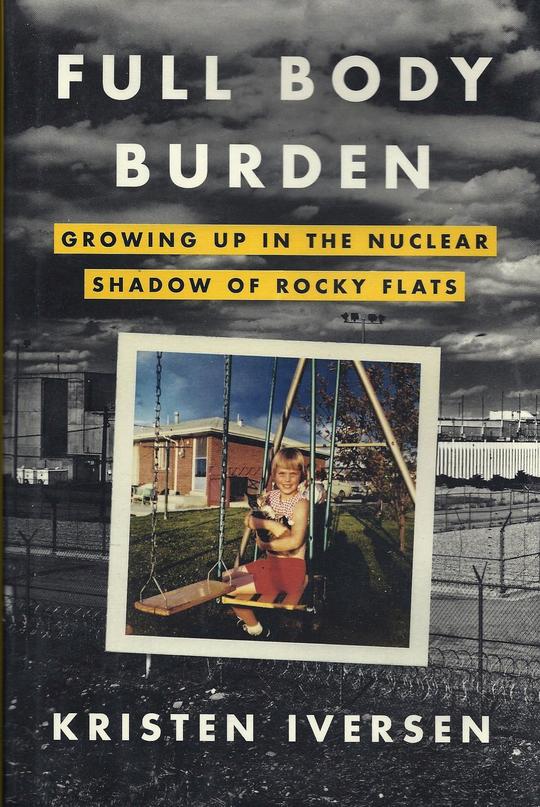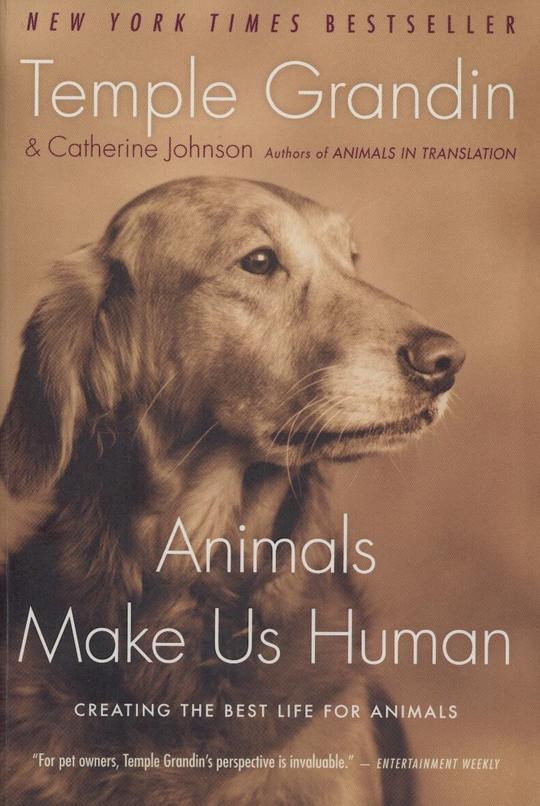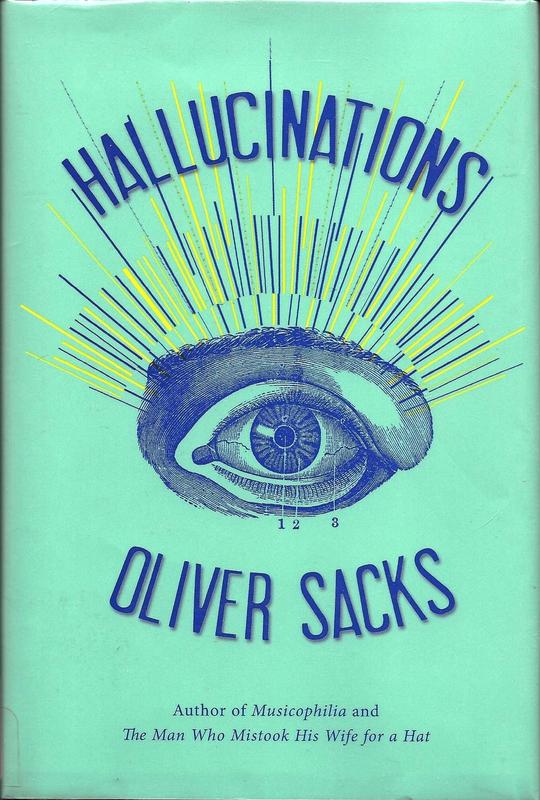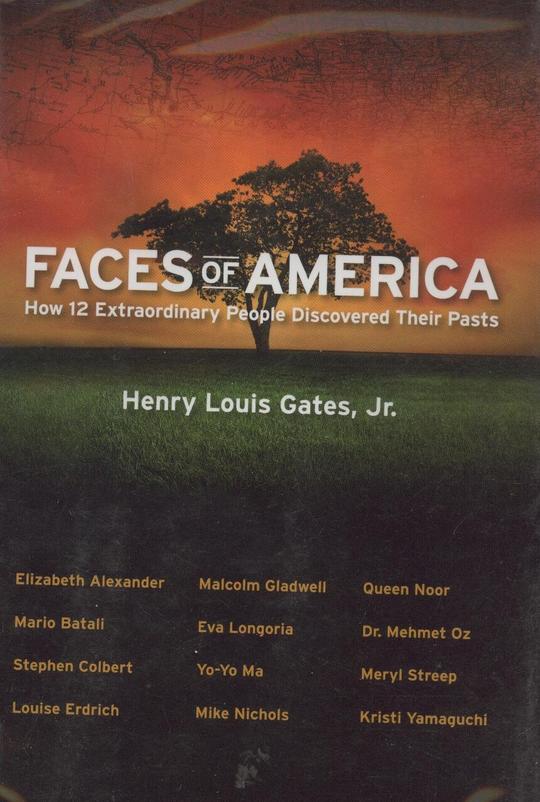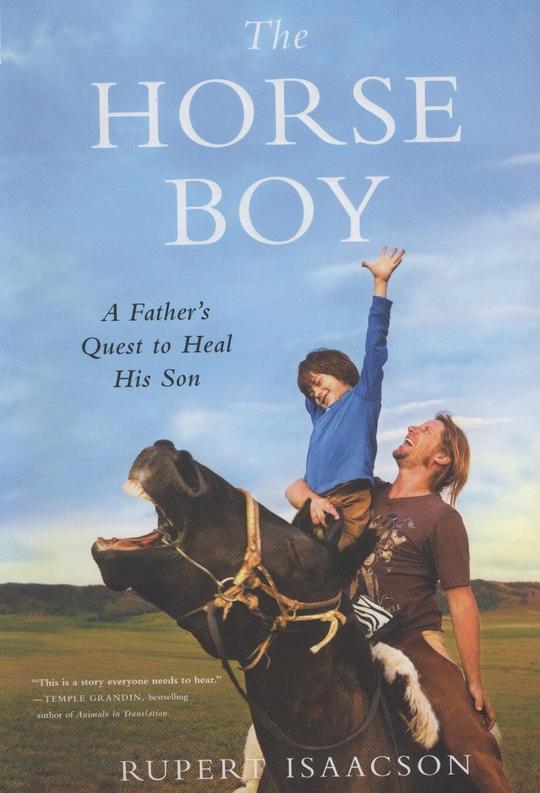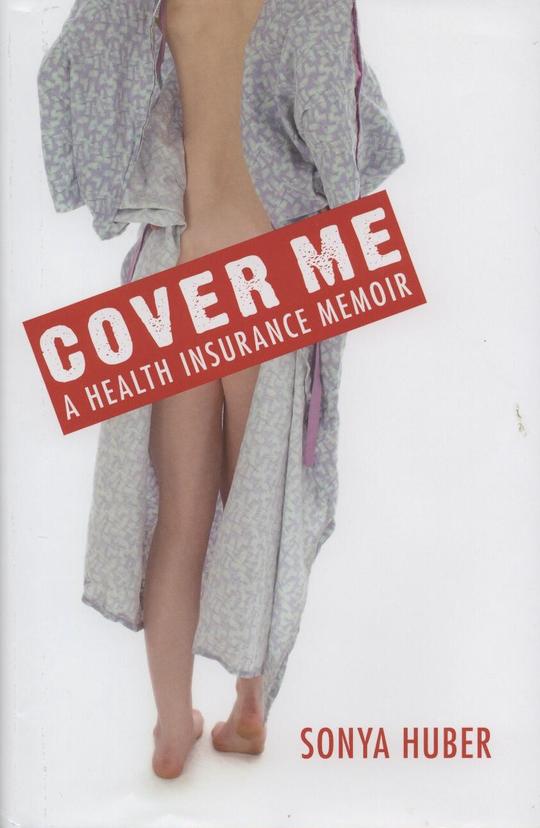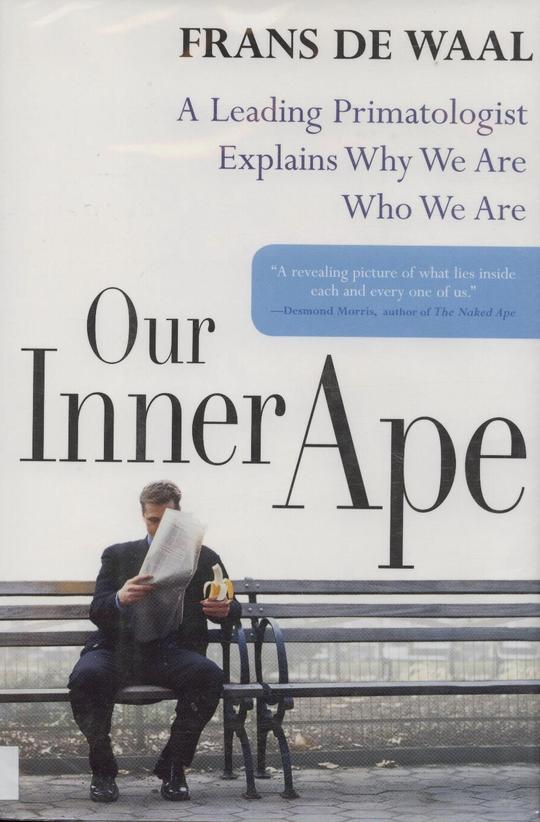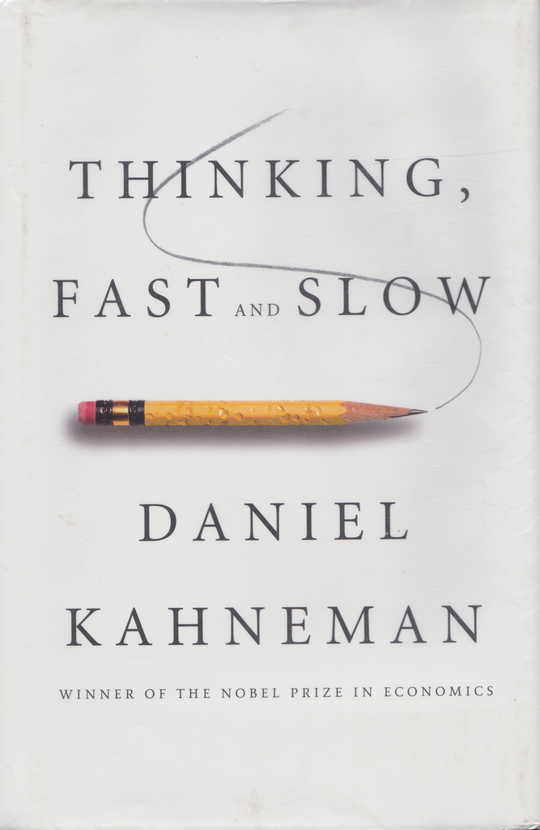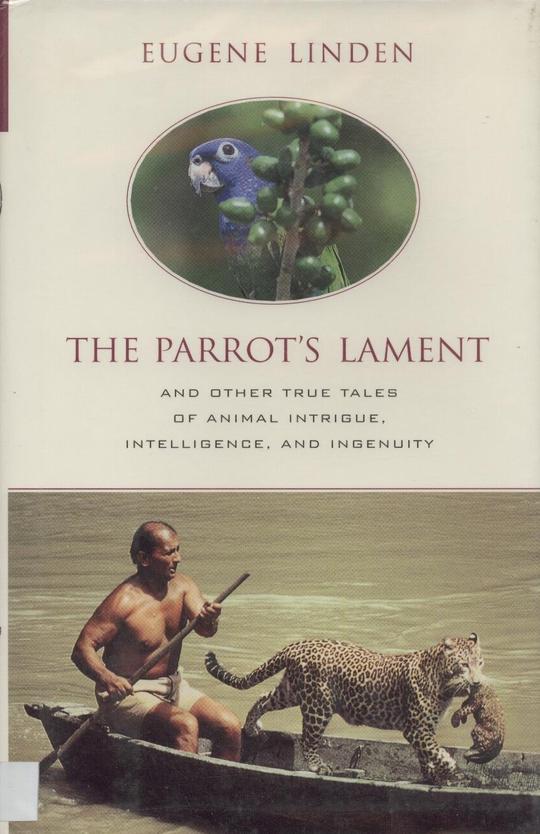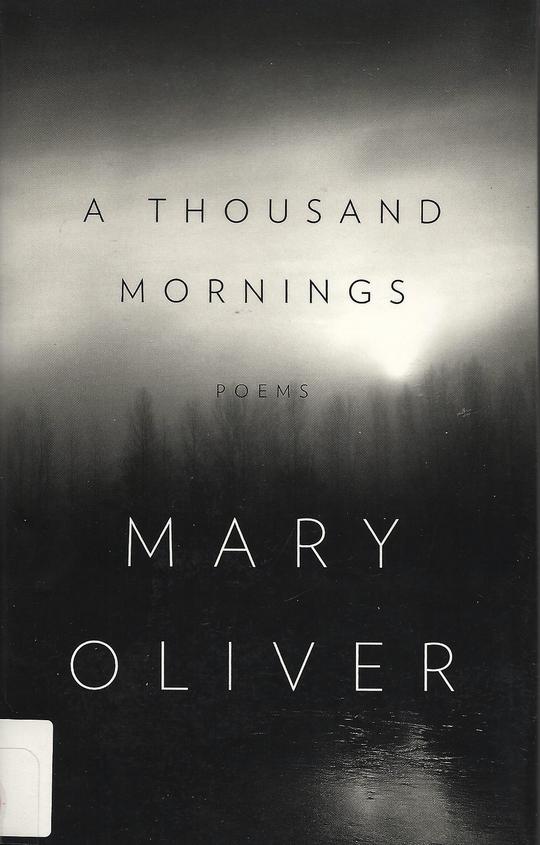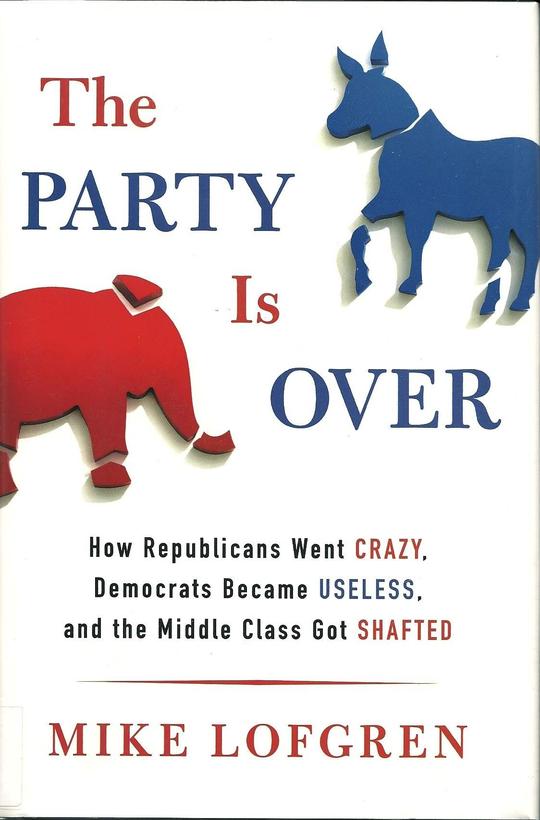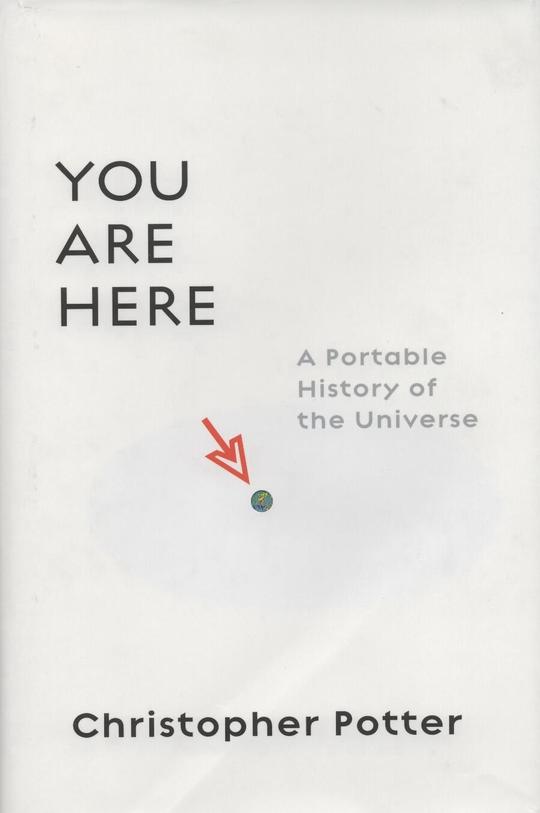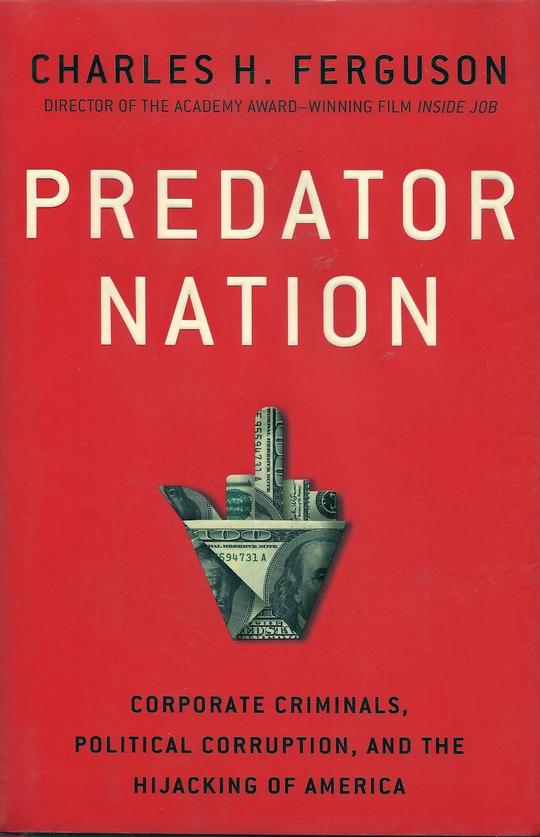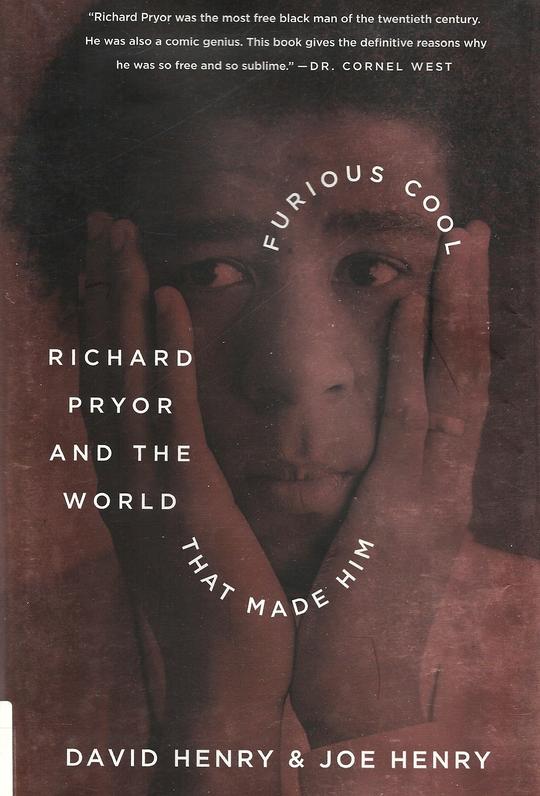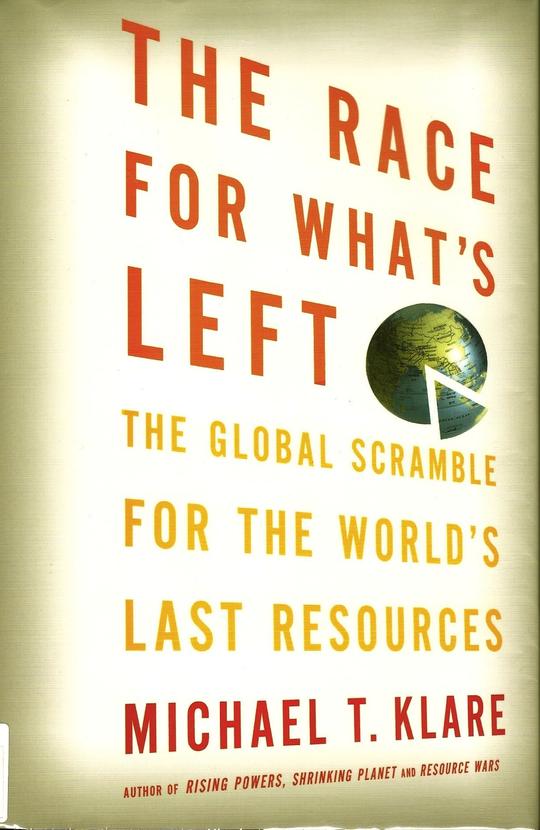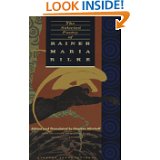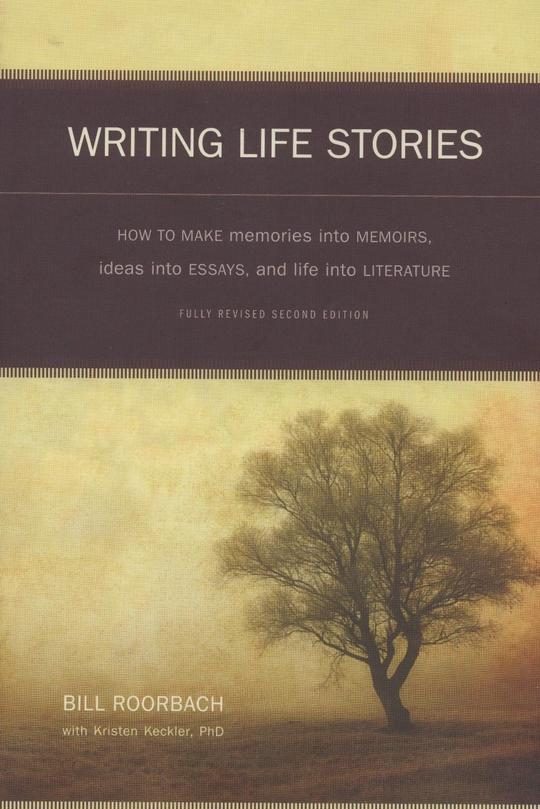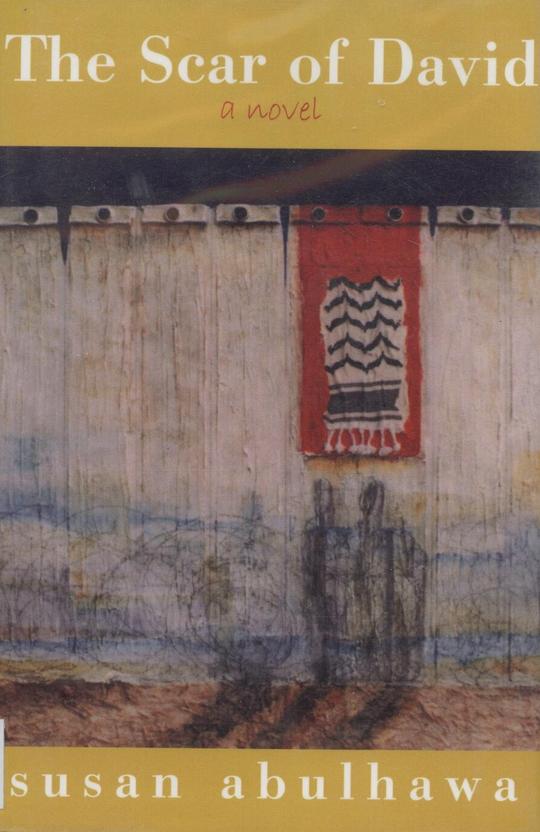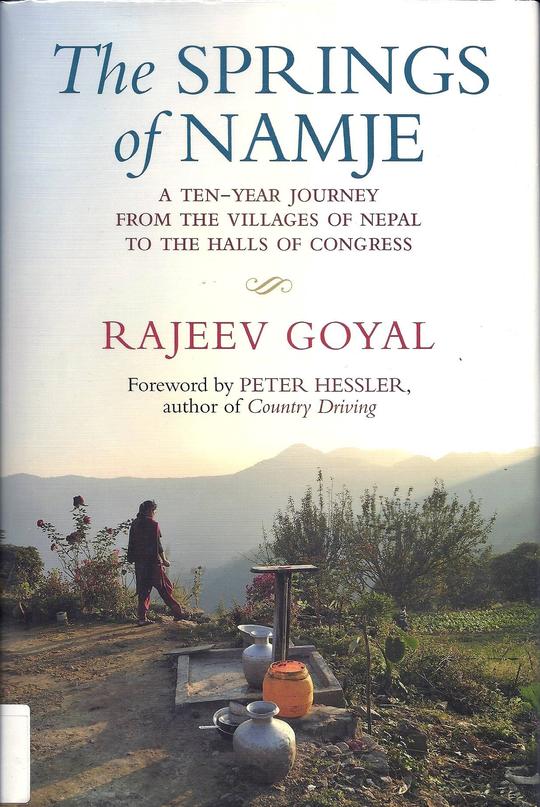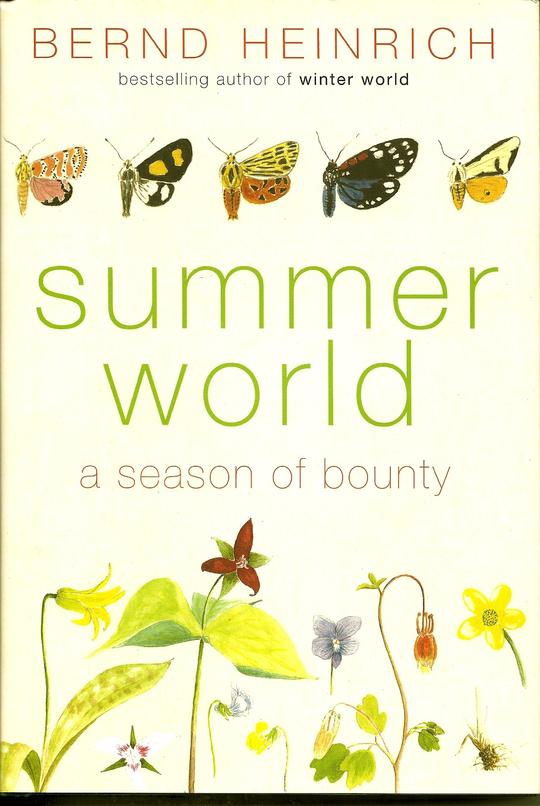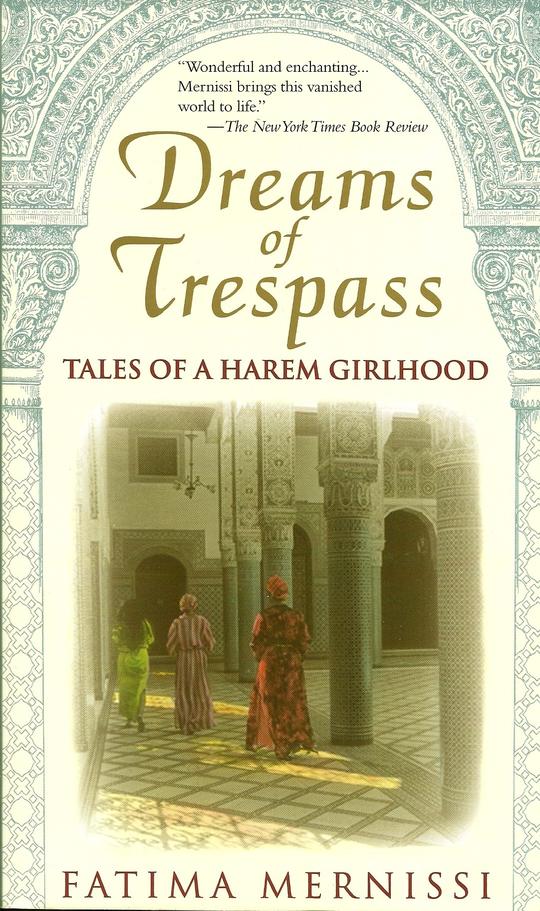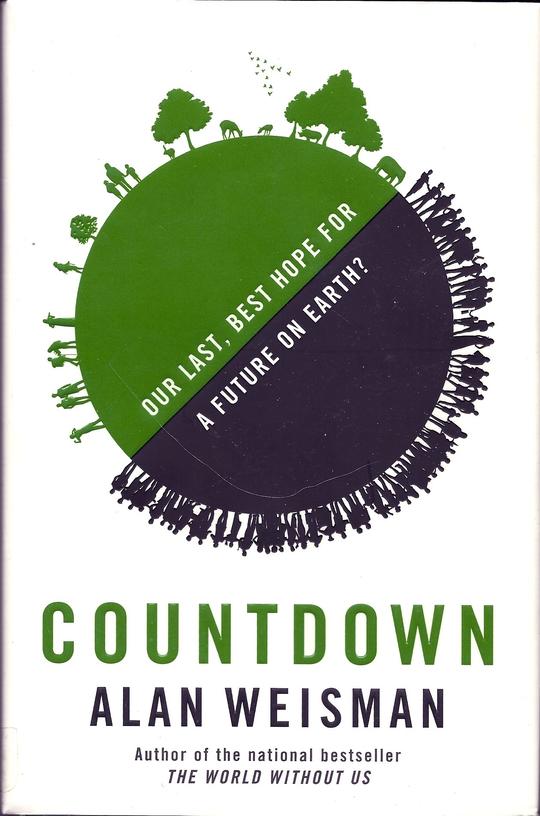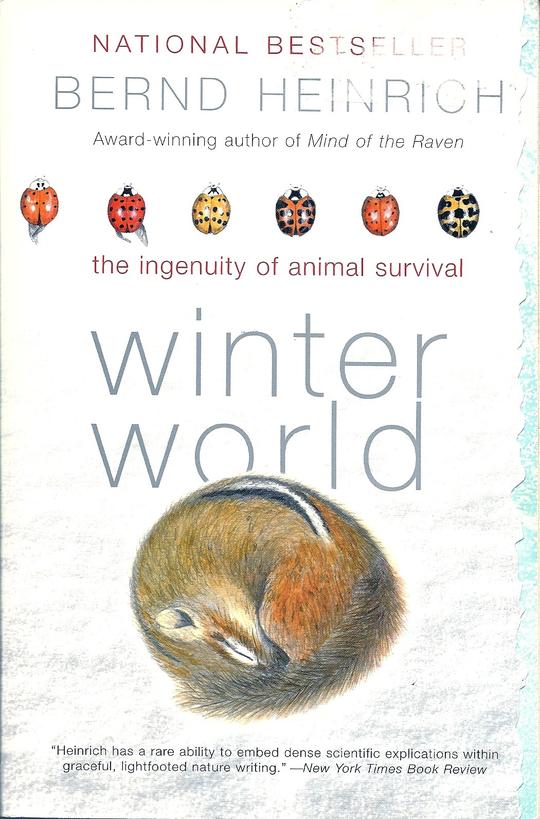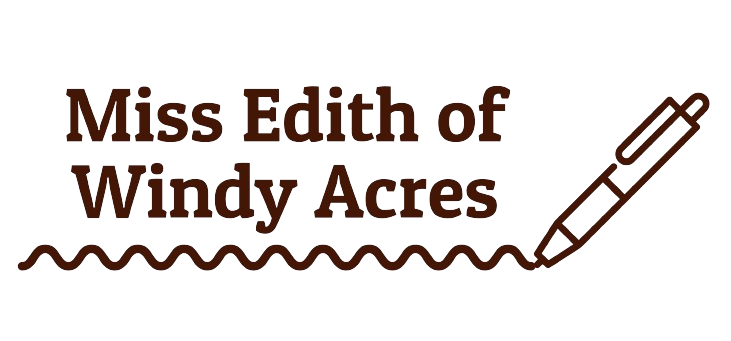Book Gallery
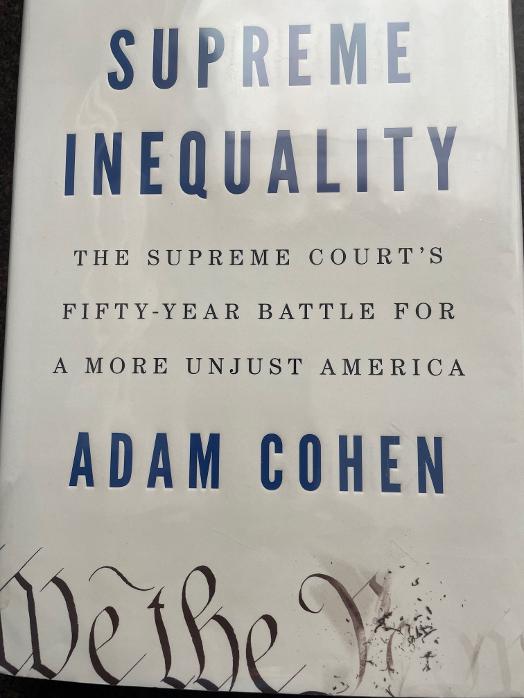
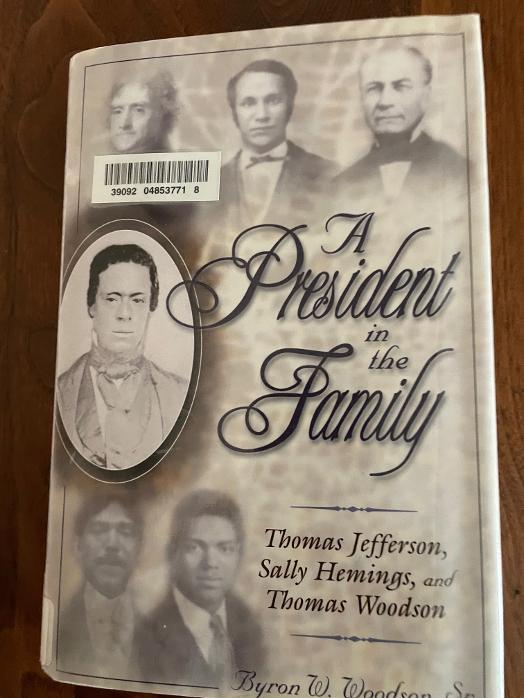
These two books have been my guide as I write about mental illness in my family, a difficult subject. Bergner's book came out in early 2022, while Whitaker's dates to 2010. Both writers express their rage at the marketing machinery that lures customers into the psychiatric drugstore and persuades them to buy multiple products. Whitaker’s chapters and sections pertaining to children at risk on these medications are especially expressive—disturbing and memorable all at once. I had submitted my essay early in 2022 to a literary magazine about medicine and healing; the editors were interested but asked for some changes. So I submitted the MSS for critique to a Jackson Hole Writers' Conference reviewer (see my article, "Critiqued" under Columns Cheyenne Post) and then rewrote and resubmitted the piece. It quotes from both of the books. Haven't heard back yet
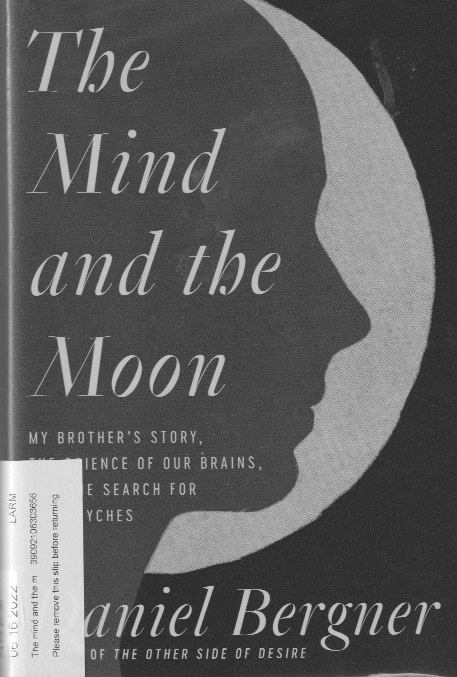
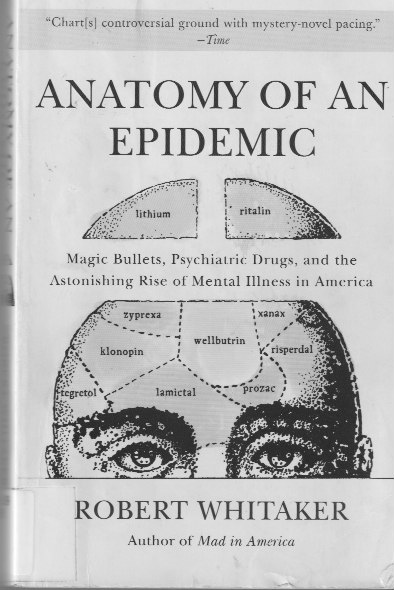
It's November going into December 2021. I've been writing about the two thought-provoking books (below) in my columns for the online version of The Cheyenne Post, www.thecheyennepost.com. If you'd like to read any of my compositions, click on the link, then type my name into its search engine.
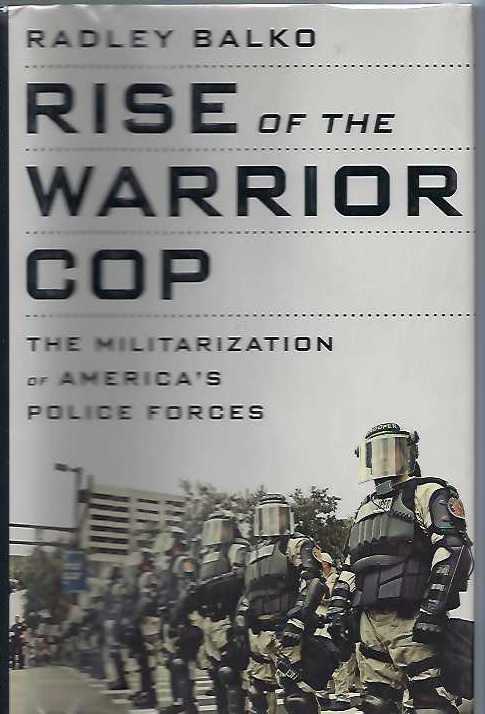
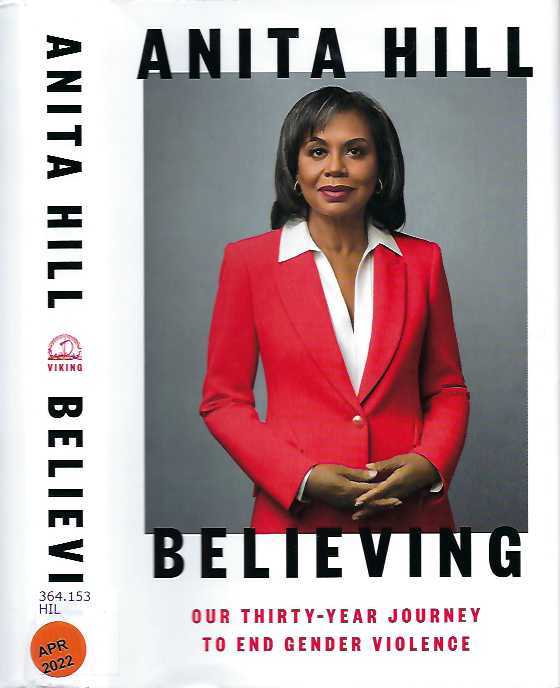
Oct. 2021: Two new books on effective communication. How You Say It discusses language bias and how we are often unaware of using it. Talking Across the Divide proposes that we do not change the mind of anyone whose ideas are opposed to ours by arguing our points; instead, we need to share ourselves by formulating stories—yes, telling stories even about our opinions and ideas (where we gathered them and why, etc).
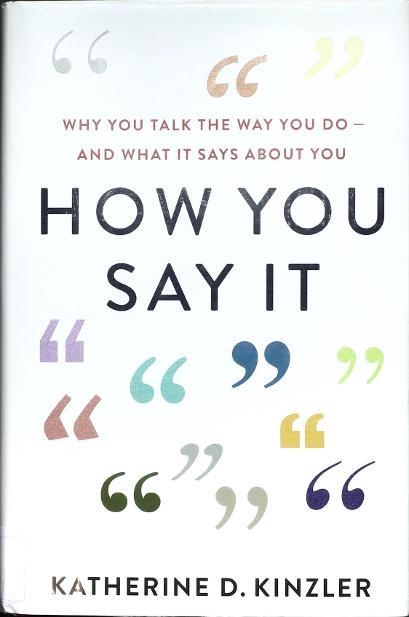
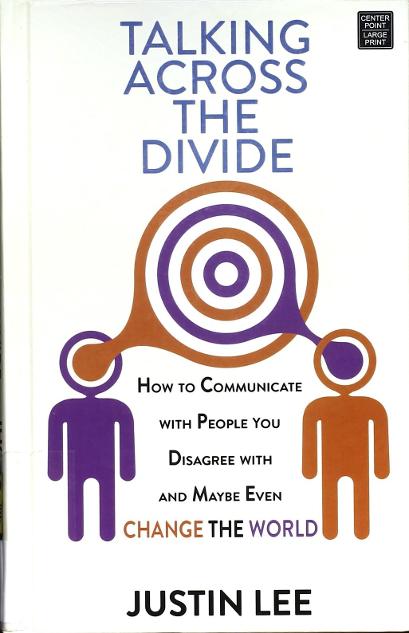
It's good to read these two books together. Reading Black Like Me in conjunction renders understandable A Peculiar Indifference; in fact, I read these two books while rereading Ta-Nehisi Coates's Between the World and Me.
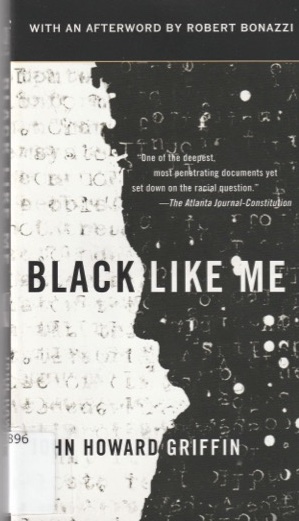
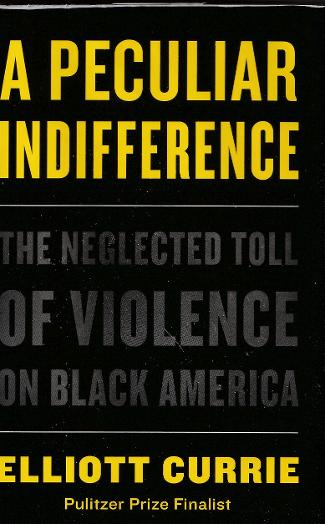
"The 2021 released "Kidnapping Club" give an idea of the callousness of Wall Street and its Big Business affiliates in colluding with Southern slave holding practices, particularly the infamous Fugitive Slave Act. "We Are What We Eat" delves into fast-food consumption and its negative effect on our health and the deterioration of our environment.
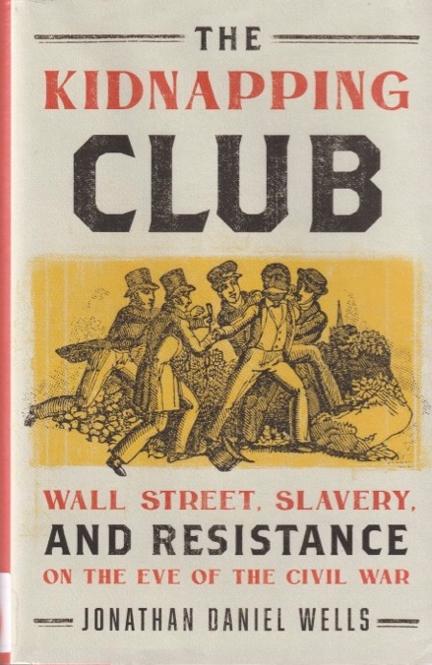
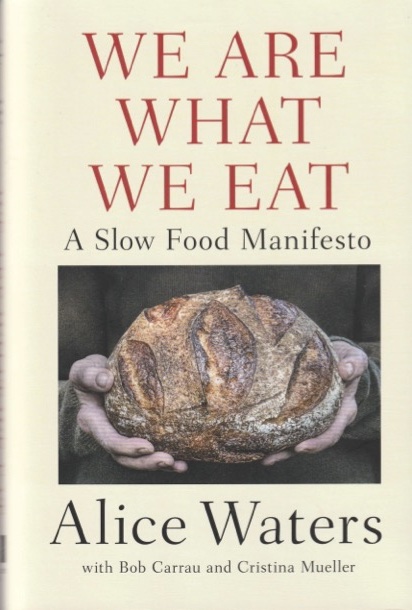
"The Body Keeps the Score" is phenomenal in its insight into trauma. I must tell you more about it but I'm scheduled for physical therapy this Monday morning (August 2, 2021) and need to leave. "Empire of Pain" will leave you shaking with outrage over the Sackler family's scheming drug sales, which initiated an opioid epidemic from which we are yet to recover.
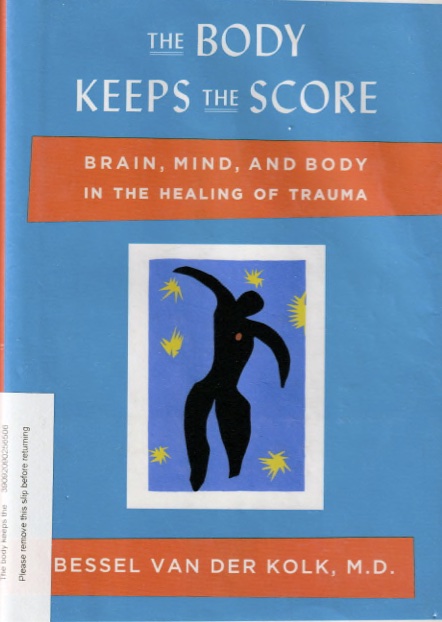
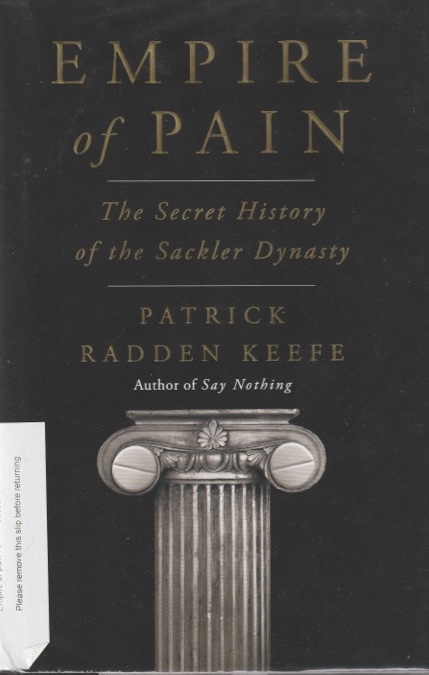
The two books below are well worth reading. If you read closely, Post Traumatic Slave Syndrome will devastate you with insight into the horrors of chattel slavery and its effects today--both on whites and on the descendants of slaves. The Storm is Upon Us illuminates the workings of QAnon, which predicted the storm was coming. This book is vital to our understanding of adherents' resistance to wearing masks. They are convinced vaccination against Covid will kill you. A spin-off is what the author calls "Pastel QAnon," which has recruited young mothers worried about their children getting vaccinated--many of these followers have no clue their ideas derive from QAnon. So sad--but also worrisome for the future of the already fragile and fractured institution of democracy in this country.
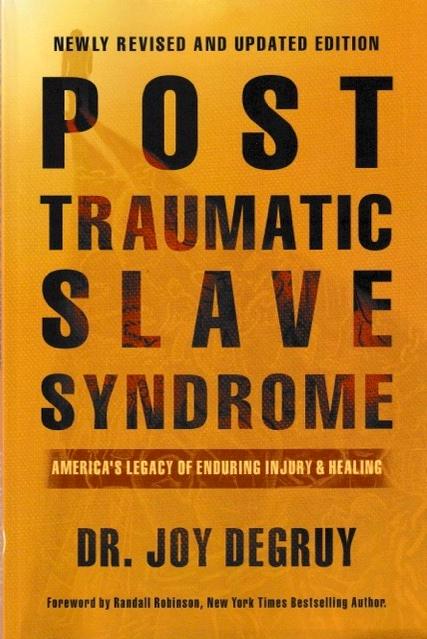
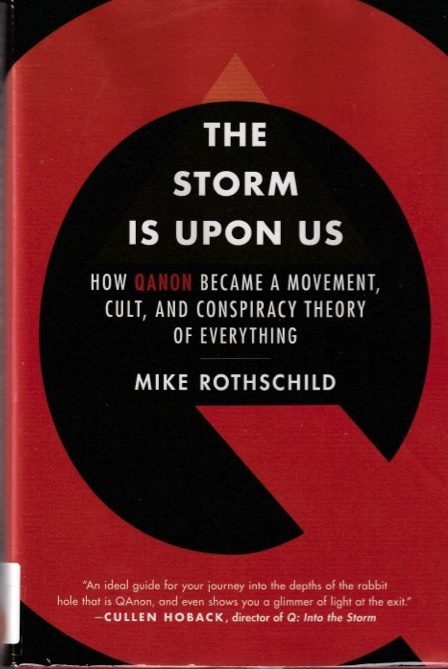
Two new (2021) books well worth your attention. "Dear Life" is the memoir of a physician addressing injuries arriving in her hospital's Emergency Ward while "Widen Your Window" offers strategies for coping with trauma of all kinds, including Adverse Childhood Experiences (ACE)--much more prevalnt than what was previously thought.
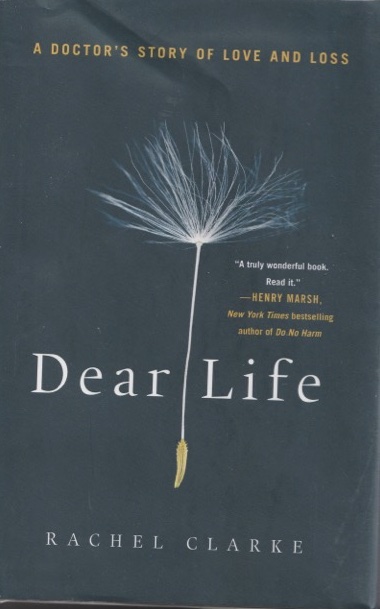
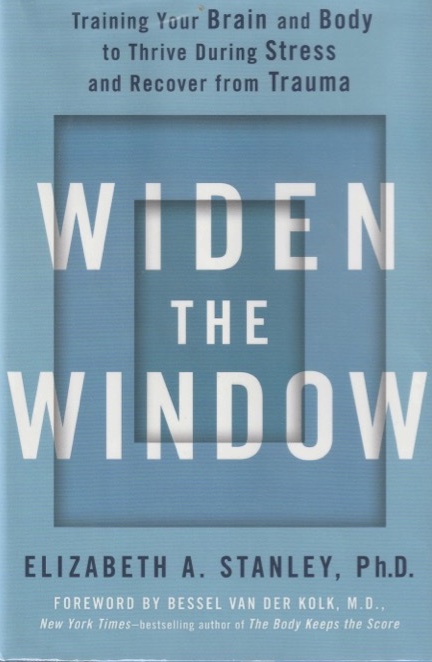
"Missing Each Other" is rather clinical in tis approach to heal bungled relationships.
"Daughters of Yalta" presents a fascinating study of three women behind their famous fsthers.
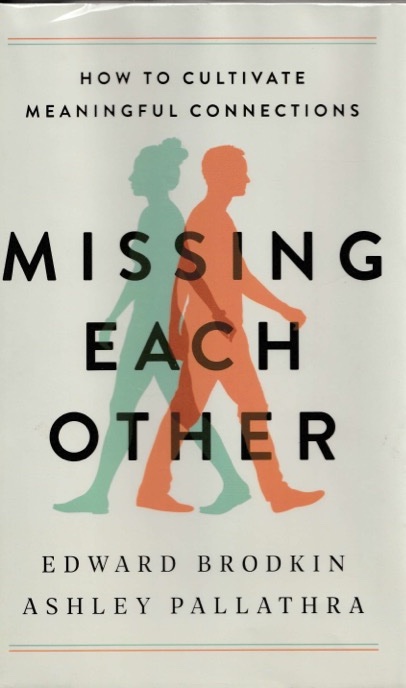
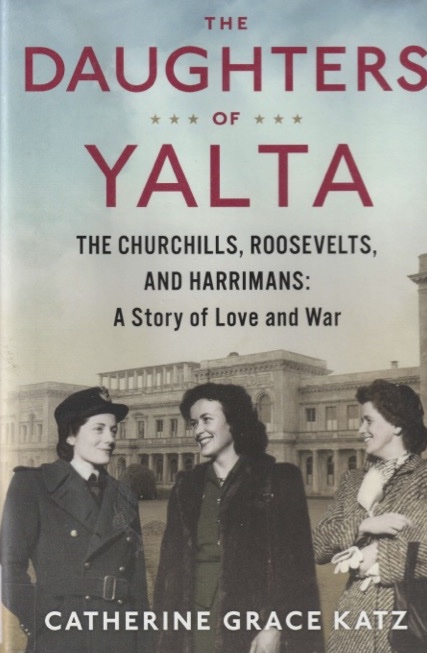
Zadie Smith's essays are wonderful. A must-read. The Heart of Everything That Is presents the authentic story of one of America's great leaders. Reading it you learn a lot about Native American and American history; sadly, the newly-created American government did not treat the tribes as equal people. The newcomers wanted the Indians' land, and they took it by force.
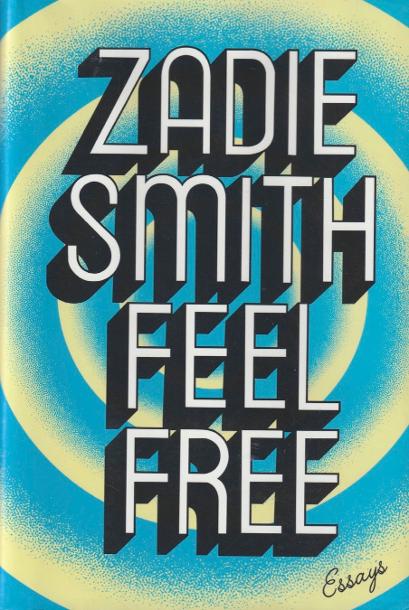
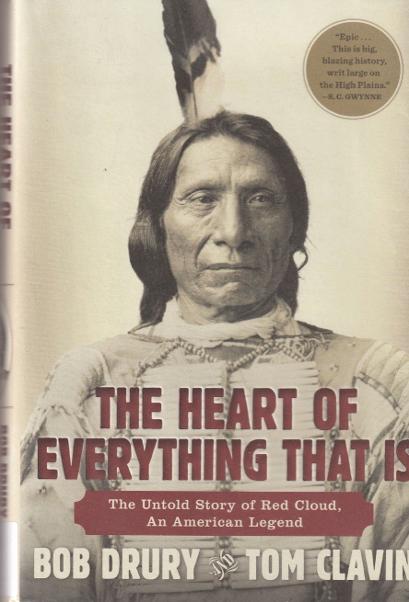
Both books are highly recommended. Debora Mackenzie's COVID 19 is comprehensive, informative, and highly readable. Like Crazy is a gay man's narrative of having his mother, an undiagnosed schizophrenic, live with him the last few years of her life.
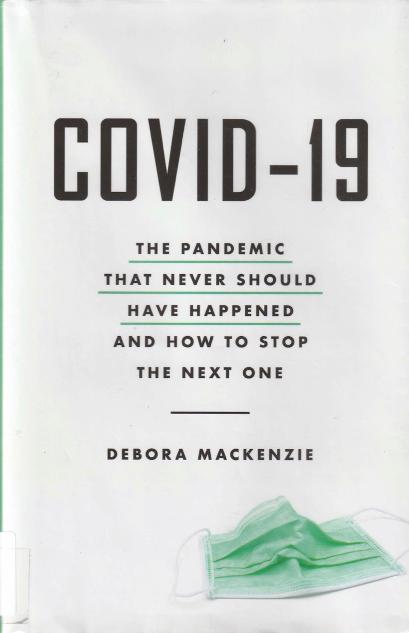
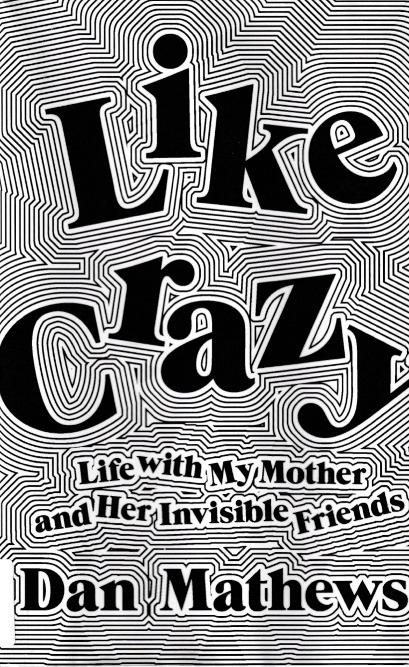
Carl Saffino (Becoming Wild) and Ben Ehrenreich (Desert Notebooks) below each tackle the extinction crisis with unique narratives.
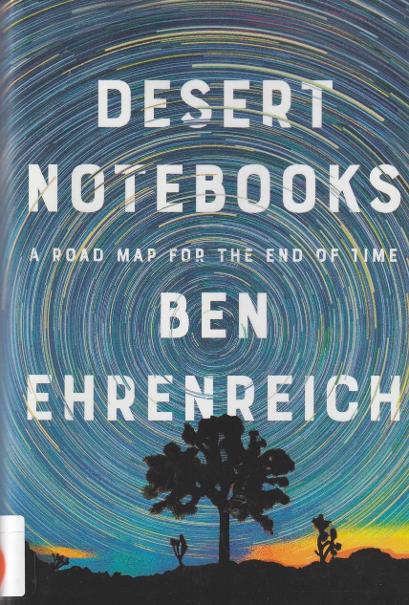
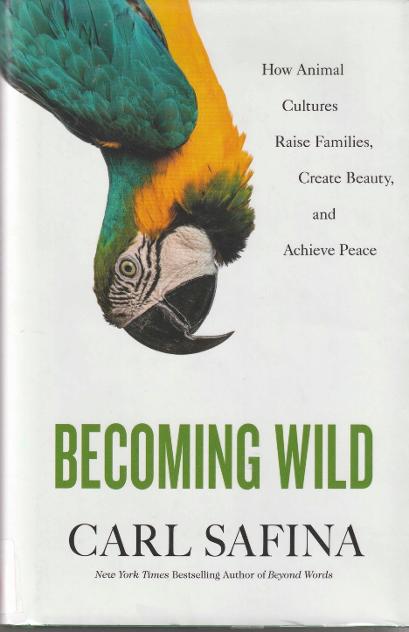
Since I have began writing literary essays I find essay collections helpful like the the two below worth emulating. Franzen postulates that the climate crisis is a done deal and cites convincing data; Smith writes erudite personal essays and observations from the point of view of a Black woman.
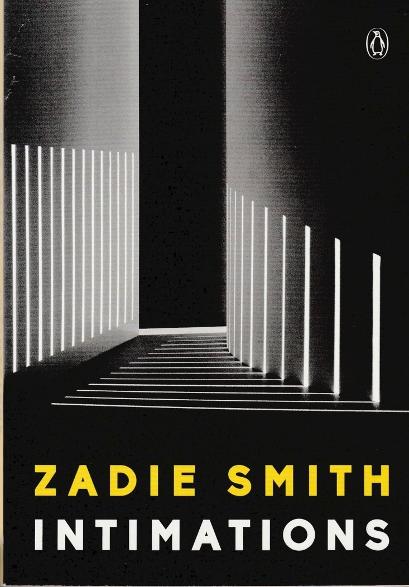
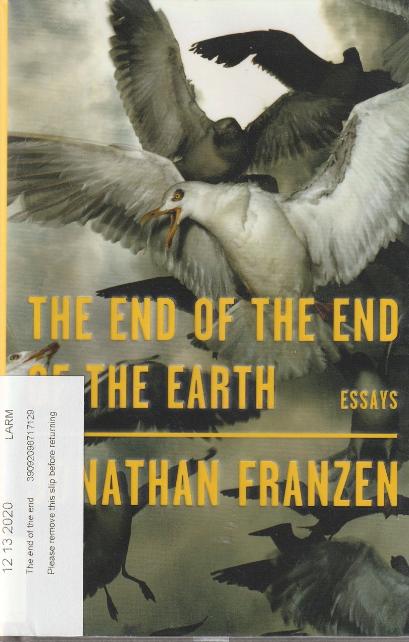
I don't often read novels but enjoyed these two, which I found in my daughter-in-law's collection in California, aroundThanksgiving 2020.
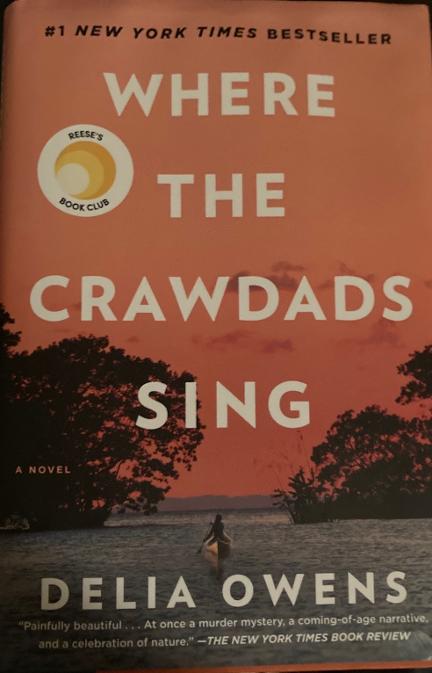
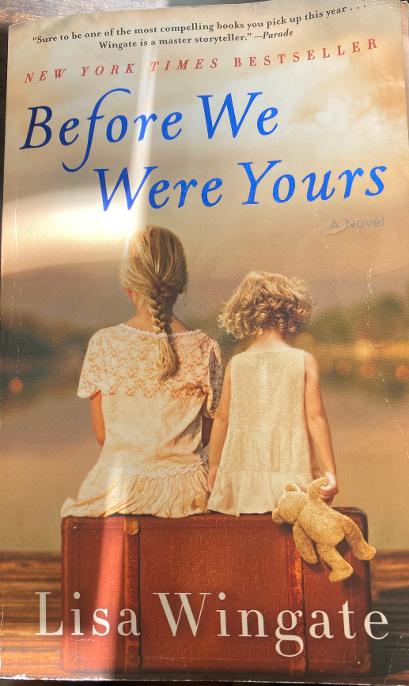
Early November 2020: Jesse Wegman's passionate argument against the Electoral College; Bob Woodward's unsparing portrait of outgoing President Trump.
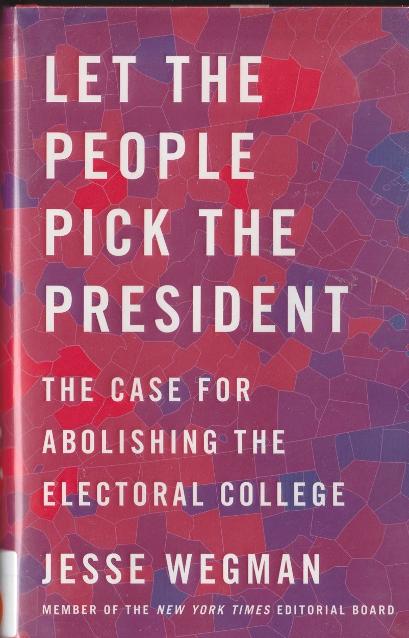
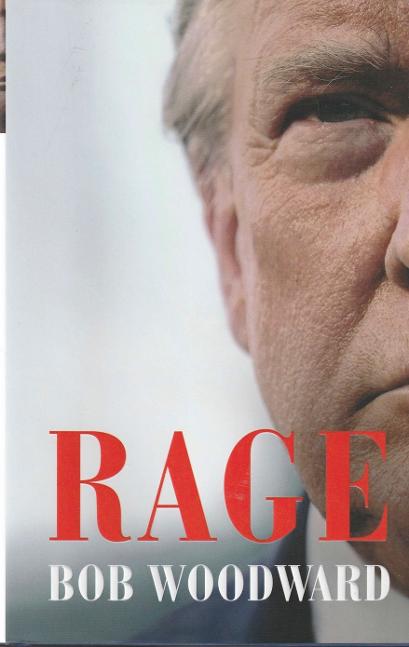
Two very different books that will ease the mind and help gain serenity. Risky Writing is Jeffrey Berman's passionate argument for self-disclosing writing and speaking, using examples from te college classses he teaches.. What Makes You not a Buddhist explains the four fundamental truths of the great teacher in accessible language.
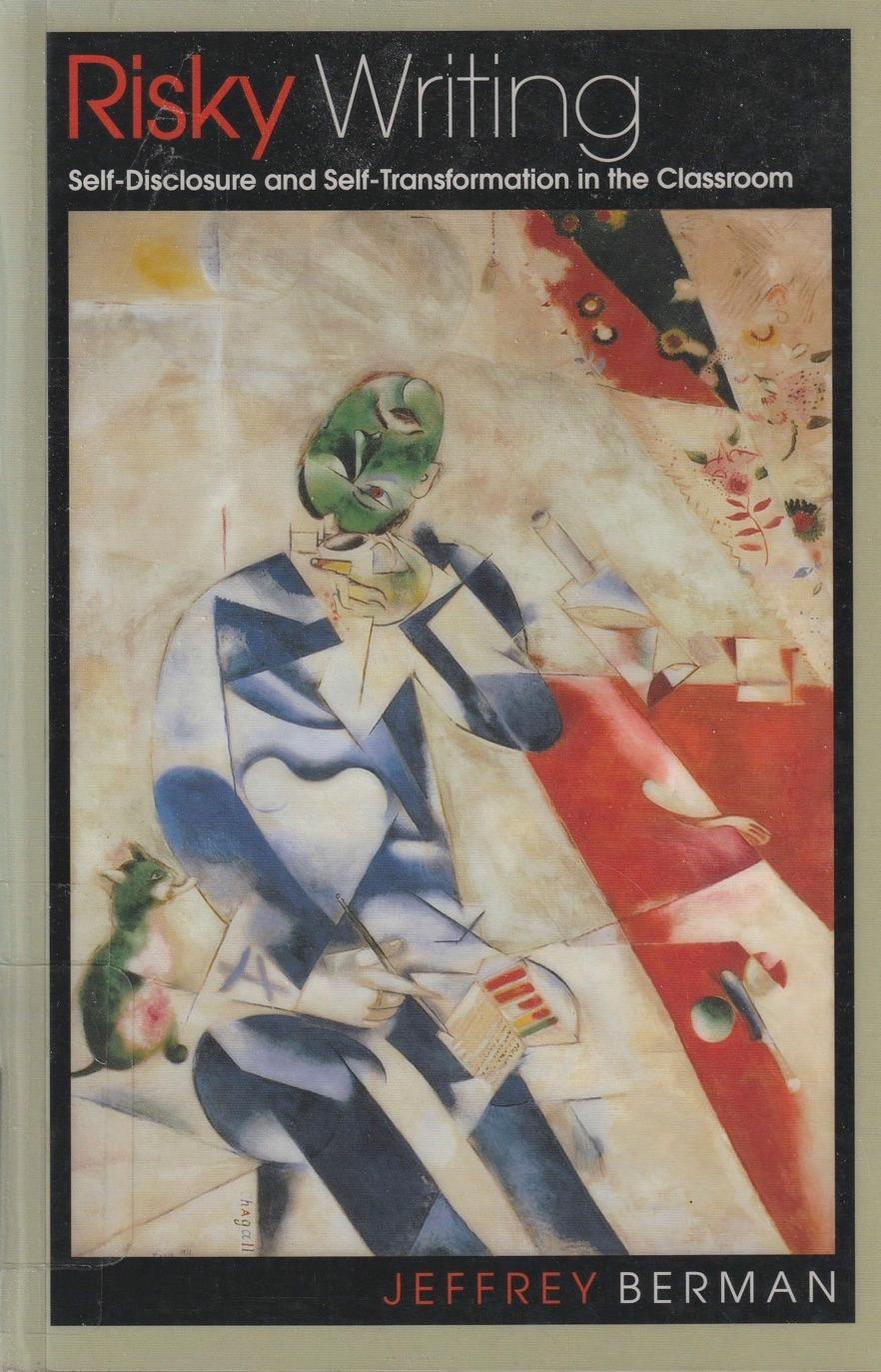
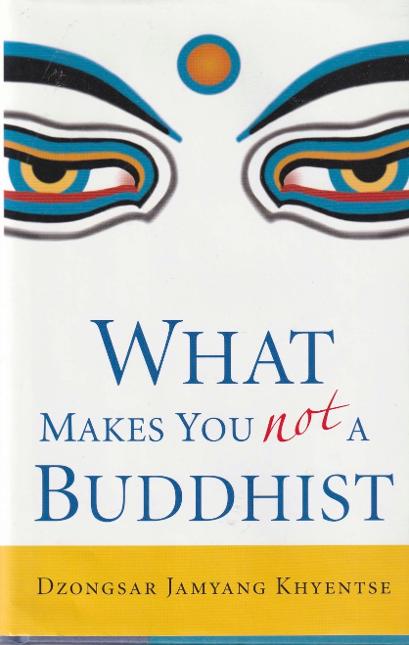
The Rushdie book, below, is an idiosyncratic self-portrait written in the third person, under the pseudonym the author used while on the run from the Ayatolla's death warrant. Kingsolver delivers a nuanced account of a missionary family under a fundamentalist spell in her Poisonwood Bible.
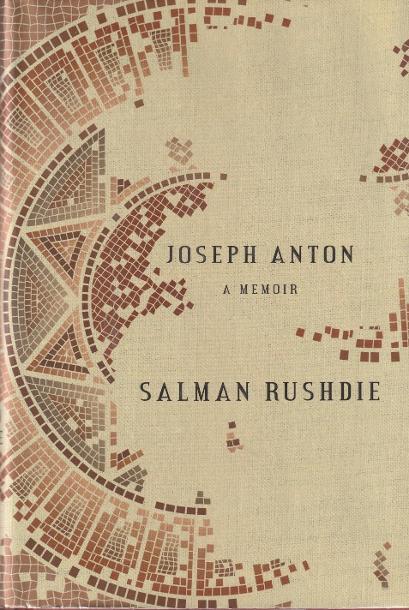
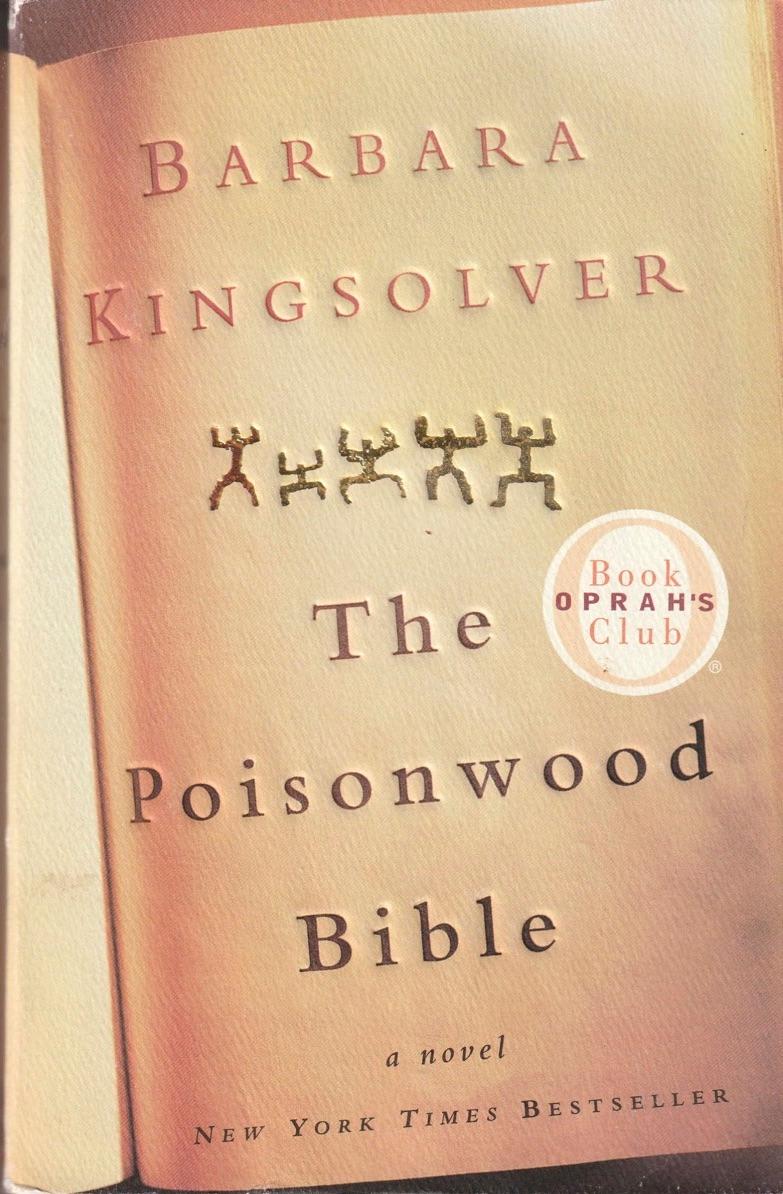
Nervous about the election--but here are two books that'll help you forget about every presidential upheaval, at least for a while. I read John Grisham again when, during the Amy C. Barrett hearing a Senator produced evidence that "dark money" was behind her appointment. The Appeal deals with precisely that scenario in a (fictional) Mississippi Supreme Court race--and the author's afterword explains that such manipulations of a supposedly neutral voting for (or appointments of) judges is becoming more and more frequent.
Mark Geragos and Pat Harris are two defense lawyers exposing serious flaws in the American justice system in Mistrial. Cops regularly lie on the witness stand, and judges trade justice for personal gain. Geragos is of Armenian descent and passionately involved in drawing public attention to the genocide Armenians suffered, a tragedy that has been left mostlyunacknowledged.
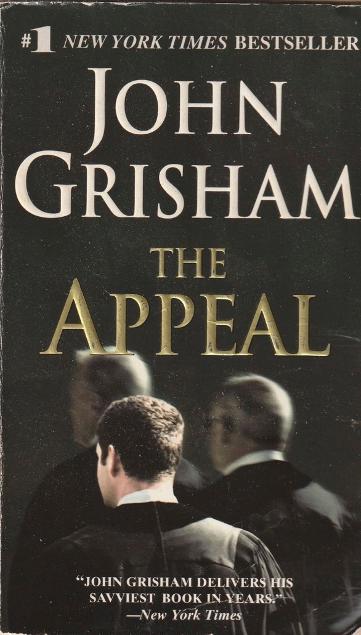
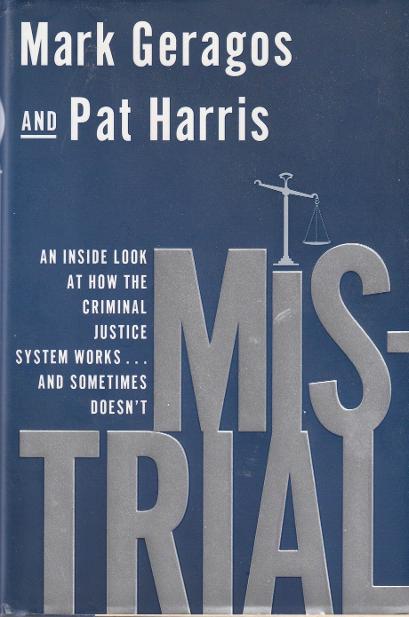
October 23, 2020. Two accomplished and beloved storytellers: William Kent Kruger builds on the tradition of Huck Finn in This Tender Land; Kruger's tale is set in 1932. A wonderful story!
Ann Patchett's Commonwealth spans two generations in a tale of the adults in two families making fateful mistakes and the repercussions for their children, both in their growing-up years and in adulthood.
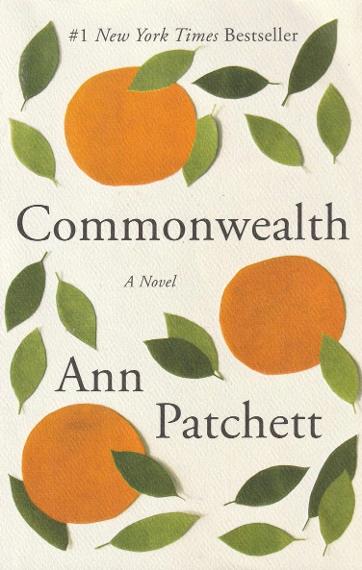
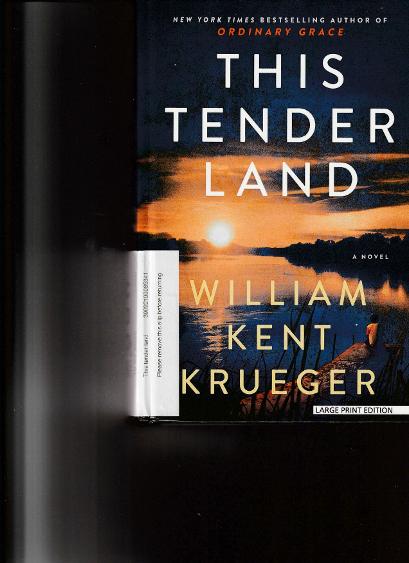
The two books below will blow your mind right off the election chaos. Each is altogether challenging in its own way. Hans Burger's is the fictional story of men who struggle with sexual attraction to children. Burger renders a convincing account of the sometime-speaker's desperate efforts to reach an “outward appearance of something approaching sanity.” As a teenager it made him flee his family and wander, a stranger to himself and others. Burger's in some sense innocent was published by Xi Draconis, which also produced The Sodomites, see below. Xi Draconis books are free for the asking--quite an astonishing fact.
Rebeca Henderson, a Harvard professor, teaches Reimagining Capitalism to would-be MBAs in a determined effort to change American business practices. She gives enough examples of instances where a corporation embarks on a path of "shared value" to make readers think, practices that have brought prosperity and good business to Germany, Denmark, and Mauritius can happen here.
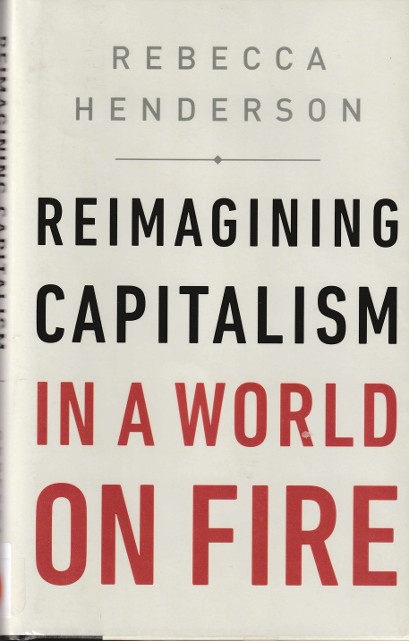
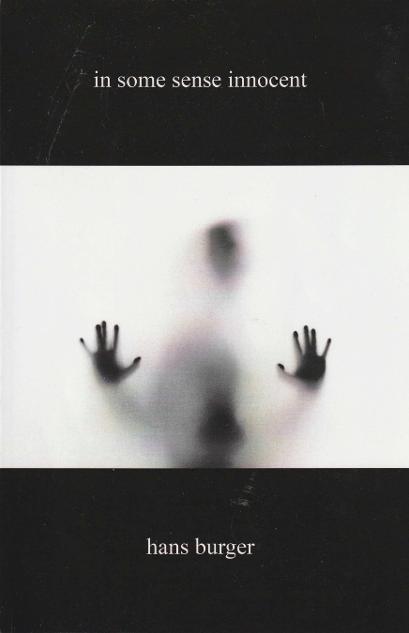
Thomas Frank believes in populism with a capital P, and he says so in this 2020 The People, No: A Brief History of Anti-Populism. It relies heavily on Martin Luther King, Jr.’s All Labor Has Dignity; in turn, King’s Populism arrived from C. Vann Woodward’s 1955 The Strange Career of Jim Crow, as Frank points out in a footnote. He quotes from King’s speeches to labor unions that repeatedly assert, if labor goes down it will be because “the forces that are anti-Negro are anti-labor and vice versa.”
The Bourbons, King recounted on conclusion of the Selma march of 1965, “took the world and gave the poor white man Jim Crow.” Frank quotes King:
And when his wrinkled stomach cried out for the food that his empty pockets could not provide, he ate Jim Crow, a psychological bird that told him that, no matter how bad off he was, at least he was a white man, better than the black man. And he ate Jim Crow. (170)
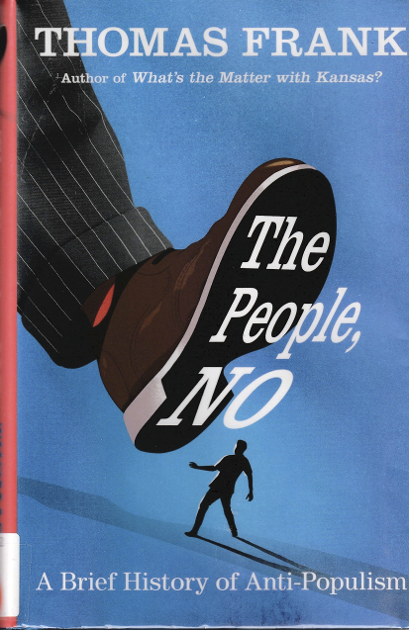
It's mid-July 2020, and the COVIDpandemic continues. I do a lot of reading. Below are just two books I have recently enjoyed. The Sodomites is the story of a (partly fictionalized) revolt against the state of Israel as it imposes apartheid on Palestinians. Rebel groups rise up against state inhumanity, are persecuted, imprisoned, and dispersed but inspire others to continue the fight against oppression.
A Year of Writing Dangerously explains that writing always entails considerable risk as well as self-disclosure "rendering yourself naked" even in fiction. It gives 365 examples of well-known writers who forged / forge ahead even in the face of abysmal fears.
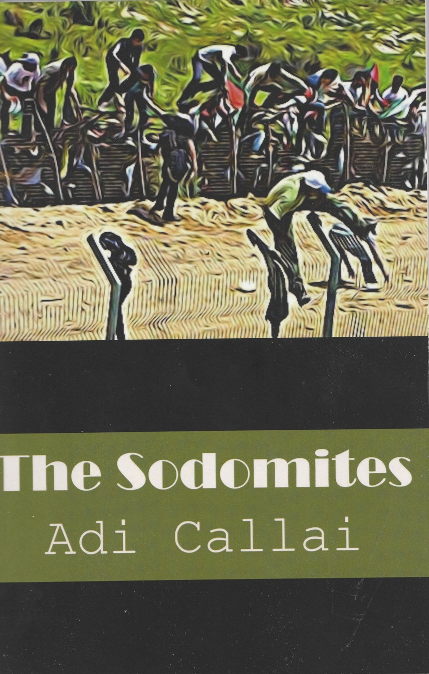
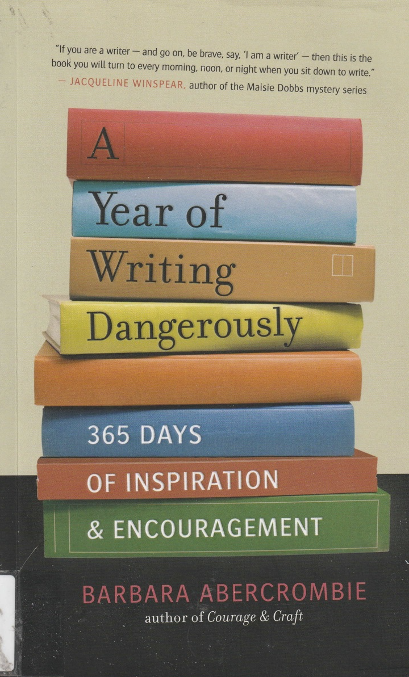
Thomas Frank believes in populism with a capital P, and he says so in this 2020 The People, No: A Brief History of Anti-Populism. It relies heavily on Martin Luther King, Jr.’s All Labor Has Dignity; in turn, King’s Populism arrived from C. Vann Woodward’s 1955 The Strange Career of Jim Crow, as Frank points out in a footnote. He quotes from King’s speeches to labor unions that repeatedly assert, if labor goes down it will be because “the forces that are anti-Negro are anti-labor and vice versa.”
The Bourbons, King recounted on conclusion of the Selma march of 1965, “took the world and gave the poor white man Jim Crow.” Frank quotes King:
And when his wrinkled stomach cried out for the food that his empty pockets could not provide, he ate Jim Crow, a psychological bird that told him that, no matter how bad off he was, at least he was a white man, better than the black man. And he ate Jim Crow. (170)
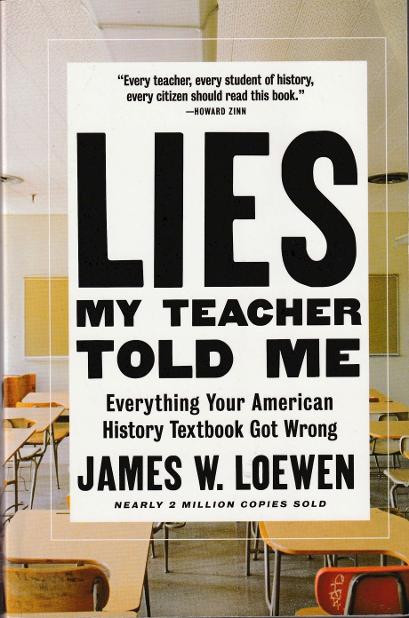
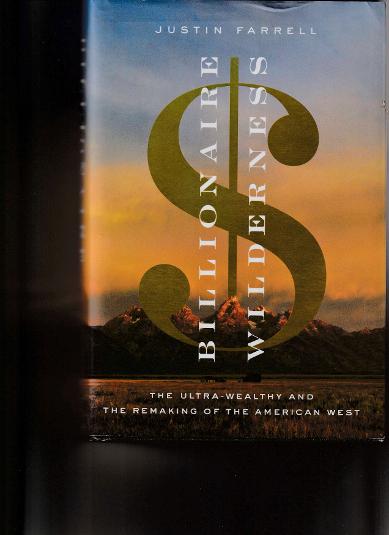

Two very different books but worth reading together. Goliath is a fascinating explication of how the US government got where it is today. Stillness tells us how to not to lose our minds to the political screams droning in our ears. I read both of these books in November 2019 while preparing for travel to Germany and Switzerland.
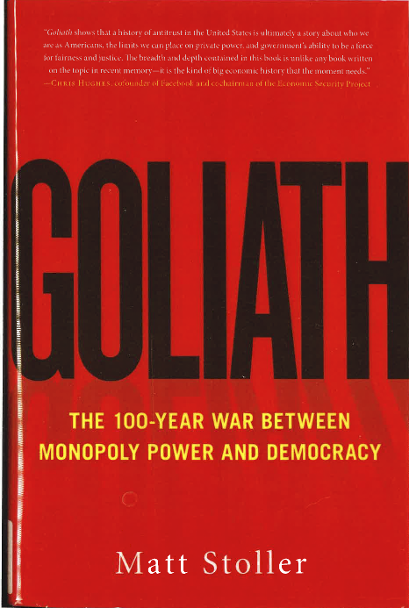
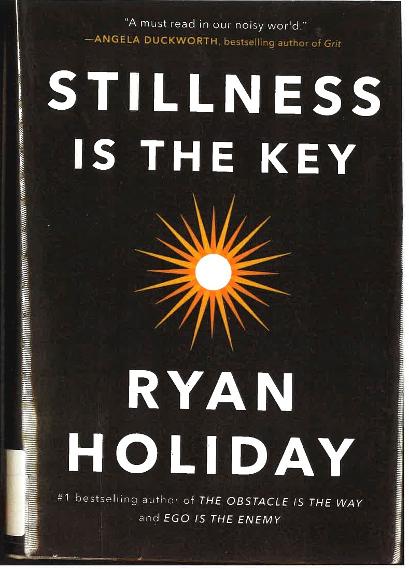
Anthology of winners of the Ageless Authors writing contest of 2019. The volume names me as one in a team of judges. Next to it, another book on the cosmos. This one provides good information on the mysterious black holes. I recently saw an IMAX film at the Denver Museum of Nature and Sciences on the subject that was a lot of hype. Nicholas Mee's book contains useful information and memorable facts.
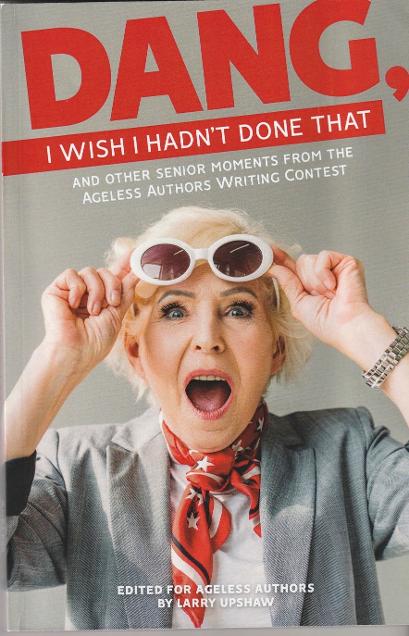
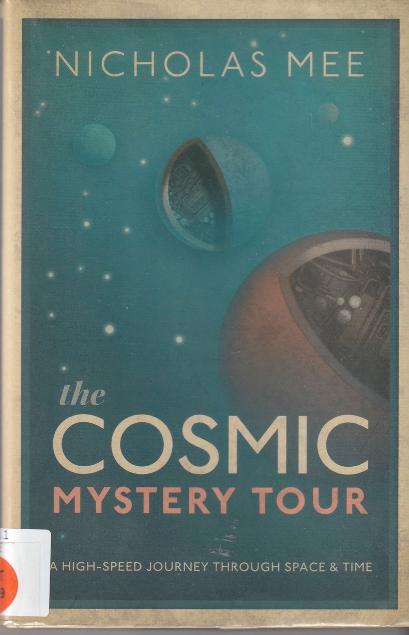
Our Universe takes us on a fantastic tour of the outer reaches, plus its most recent discoveries and ongoing research. Written in accessible language, the book is wonderfully explicative.
Spying on the South comprises Tony Horwitz's retracing of Frederick Olmsted's extraordinary journey through the 1850s South and his reports to his employer, the New York Times. Olmsted often focused on the brutality of the slave system, then in full swing. (It is said his reports influenced the move toward civil war.) Horwitz finds that not much has changed, and he aligns Southern past approval of slavery with approval of Donald Trump (then a candidate seeking presidential office). Texans hate central authority and Big Brother government, he notes. "The attitude is, 'Leave us alone, let us live our lives'." When Horwitz tries to debunk the myth of "gun-toting Muslims" he gets nowhere. He is considered "the press" who are "a pack of liar."His conversation partners, Moose Lodgers, speak of President Obama as "A Muslim in the White House."
Either book is well worth reading.
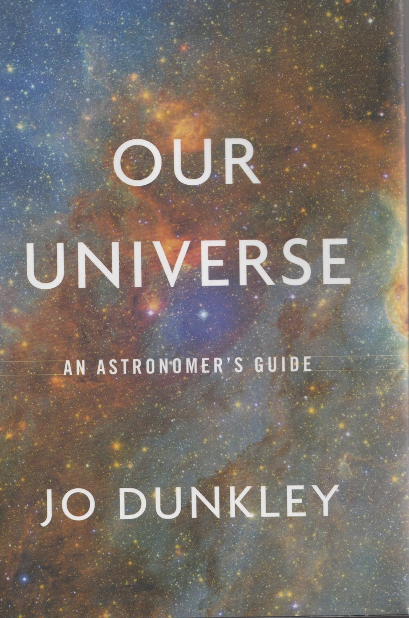
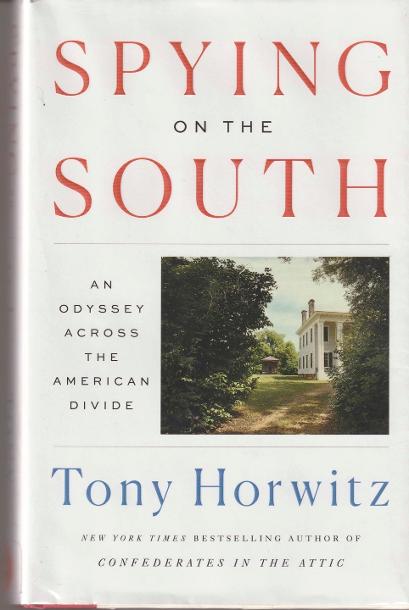
Here is to all the people who must rush through their days. Is it possible to stop long enough to smell the roses? Jenny Odell says it is.
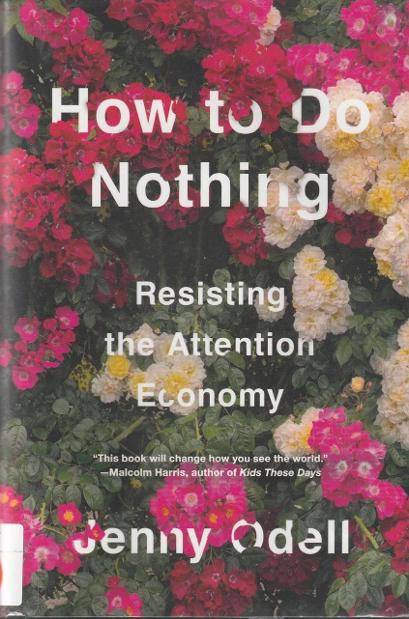
This is an exceptionally interesting and well-written story. Fiction, to be sure, but so terribly true to life! It switches from Germany to France and back in prewar Europe--and when war comes, its horrors are faithfully rendered.
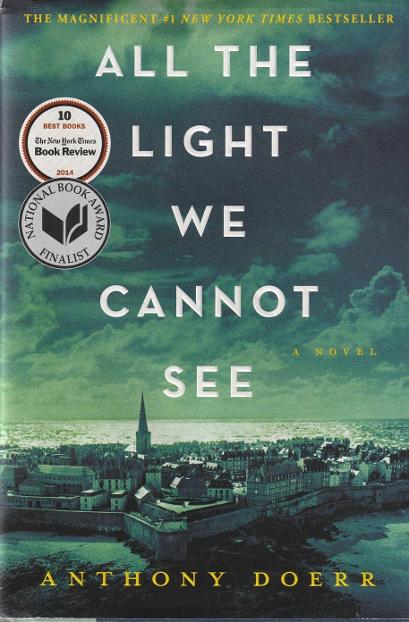
The Inner Level is devoted to the research these authors and others have completed into the effects of inequality on social behavior. They find disconcerting effects of increased drug use, depression, suicide, and other serious health risks in countries like the US and the UK, where inequality is much more severe than, for example, in Scandinavian countries. In countries were inequality in income and social status is pronounced, people are less inclined to act towards goals for the common good, which is an ominous indicator of absence of decisive action regarding the threat of climate change, which these authors term a climate calamity.
This book takes patience and dedication to get through because it goes into such detail on the various research projects that contribute to the authors' findings. I found the closing chapter most relevant and interesting.
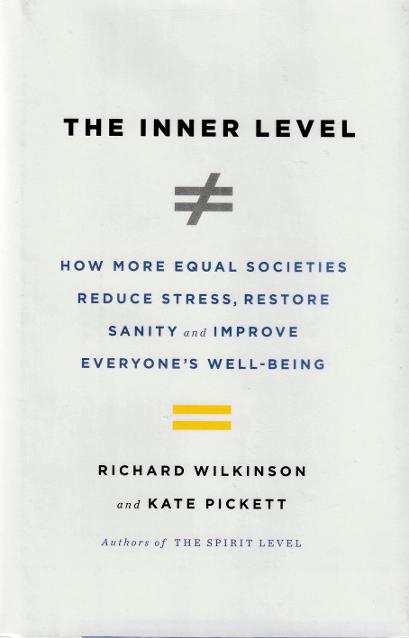
Underland makes for fascinating reading. Its author explores caves and glaciers, and he interviews the people devoted to these sorts of undertakings. Underland shows that we can no longer escape the effects of climate change. "Ten years from now, no ice, no dogs, no hunting," says an Inuit hunter who still uses sleds and dogs but finds the ice increasingly too thin, too treacherous to venture out.
For those of you who, like yours truly, occasionally look for a detour into optimism, Life is Good: The Book fits the bill, co-authored by the two young men who originated the Life is Good logo.
Another feel-good book is the novel by Barbara Kingsolver, below.
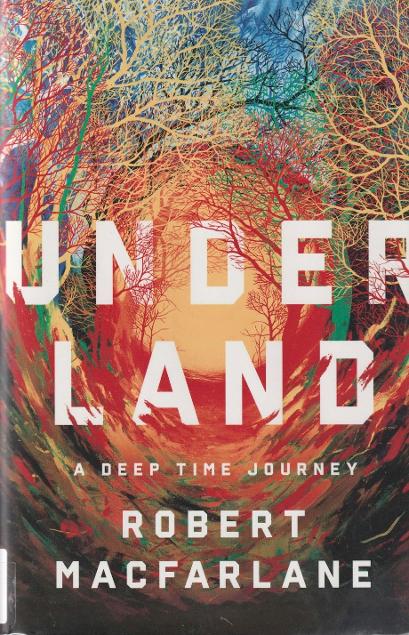
My kind of summer reading: Oliver Sacks's end-of-life memoir and Lorin Lindner's account of working with veterans afflicted with traumatic stress and how abandoned bird help heal a little.
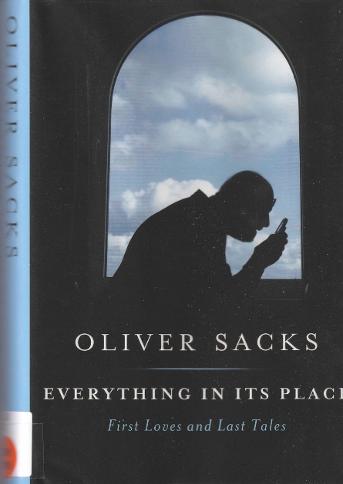
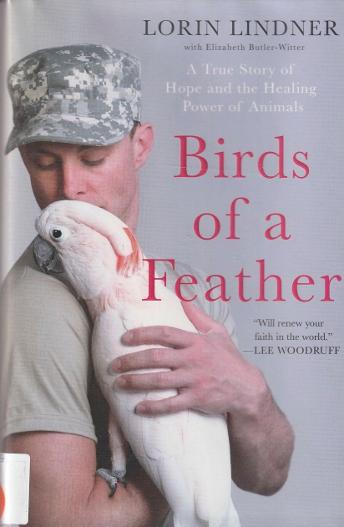
Here are the most recent (May 2019) additions to my reading. Alex Kotlowitz and Gilbert King will cause you sleepless nights. Abdi Nor Iftin is harrowing but conciliatory while Mohammed Al Samawi presents a searing portrait of Muslim teachers' delibrate distortions of the Judaic faith.
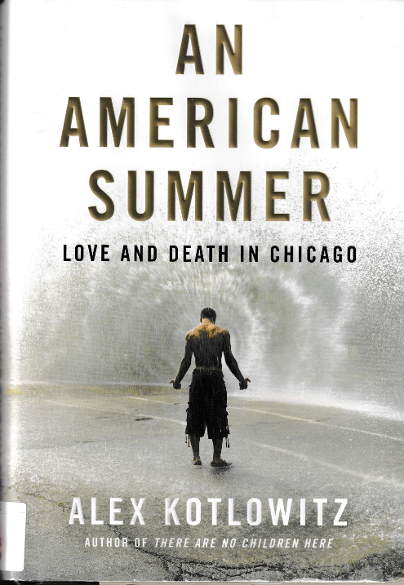
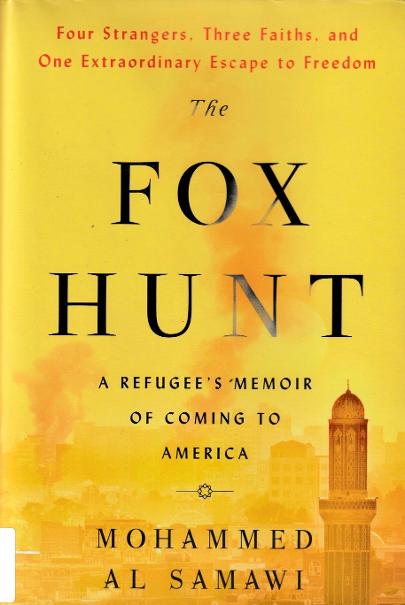
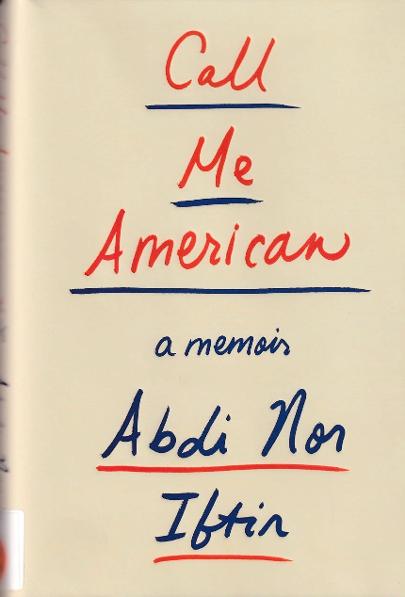
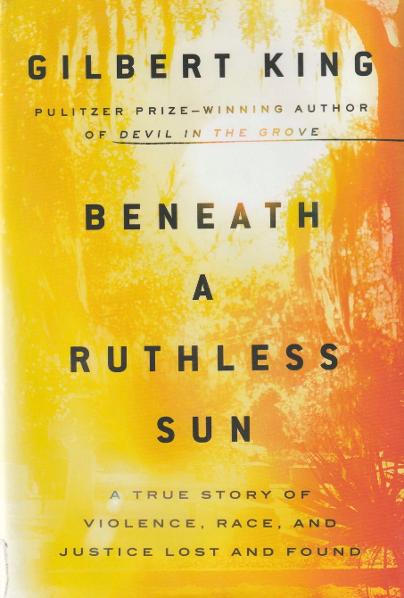
As fond as I am of Gavin van Horn's book on the urban wilds (below), I am disappointed in Harrison Scott Key's memoir. He is a writer who seems to have little to say, so he writes about writing, specifically writing his previous (and first) book, which seems to have been a success in humor writing. So he gloats, perhaps justifiably, of his success--but the writing is anything but funny.
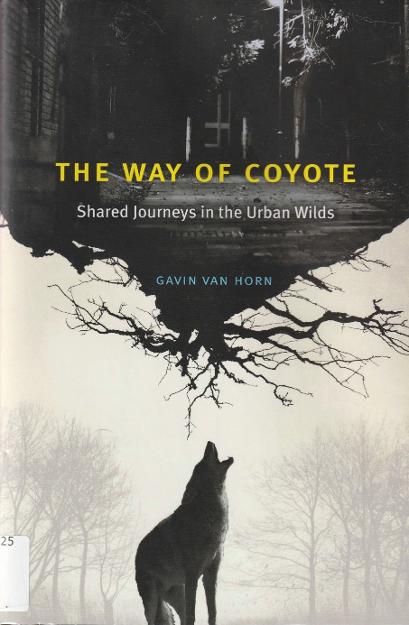
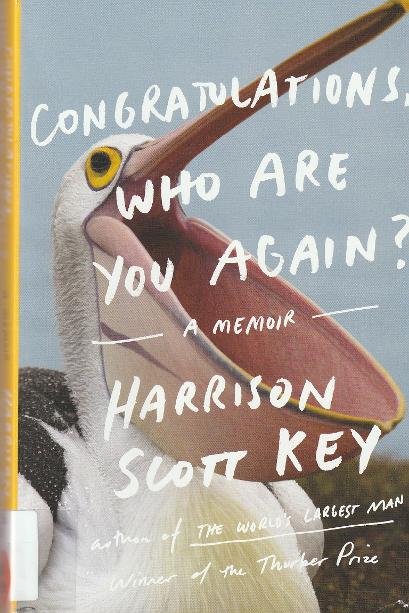
My latest entry in News Log mentions two recently-published extraordinary memoirs, Edith Eva Eger's The Choice and Abdi Iftin's Call me American. Each is is an immigration saga of courage and perseverance in the face of seemingly unsurmountable odds. See pics of dust-covers below.
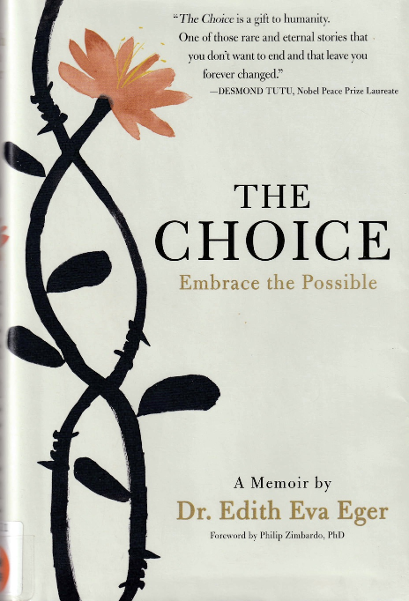
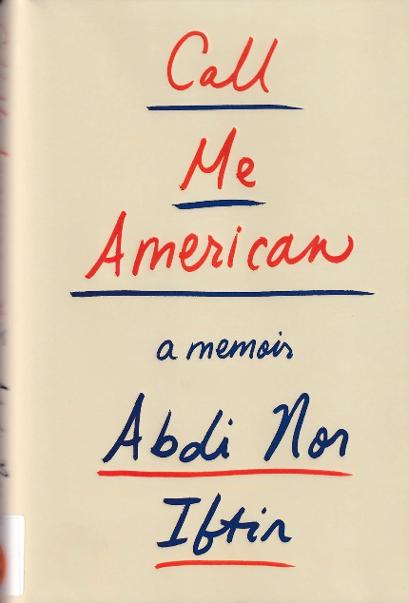
The two books below offer fascinating insight into two instrumental founders of the United States. Taken together they round out a picture we've only learned about in bits and pieces--and often exaggerated ones at that, hence not really accurate. These books require patience and time to get through but it's an effort well worth it.
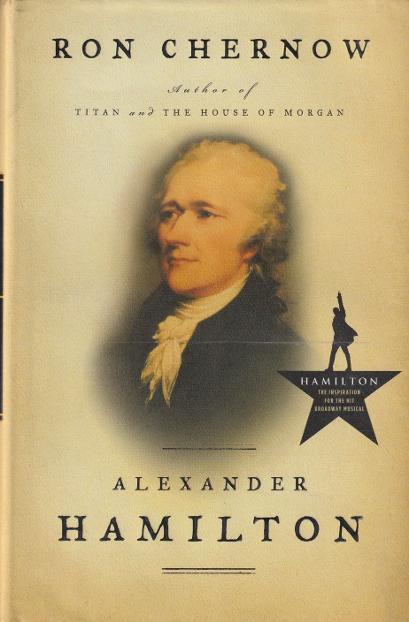
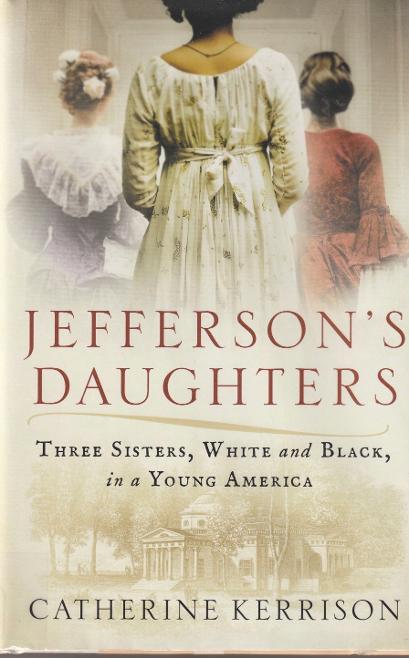
The books below are each awesome in unique ways. Michael Dyson examines discussions on race relations from the Kennedy administration to the Trump era. Sarah Bird's book is a novel built around the truelife of a young black woman, a slave until after the civil war, who is the only woman ever to have joined the U.S. Buffalo Soldiers. A richly imagined book, all the more remarkable since its composer is a white woman.
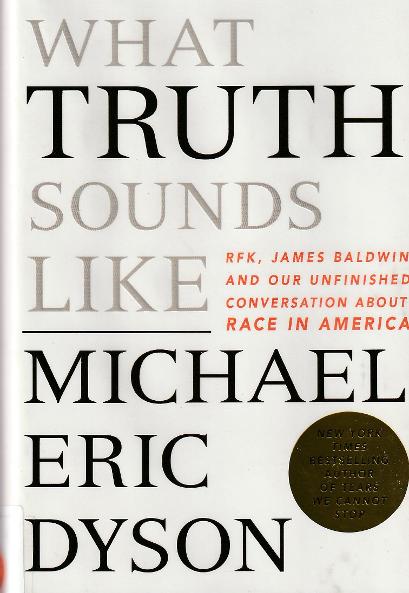
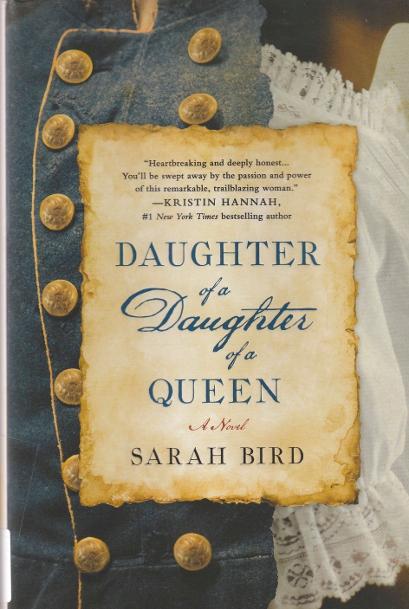
For anyone wanting an understanding of the seventies amazing musical innovations along with the hippy and anti-war movements, Goldberg's book (below) fits the bill, while Michael Hayden examines the disturbing state of affairs in the Trump White House, particularly as it pertains to foreign affairs.
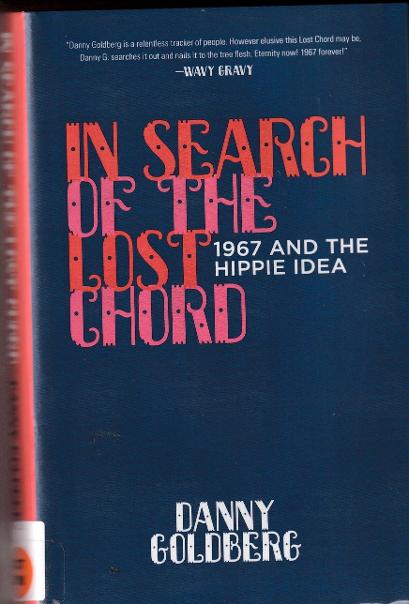
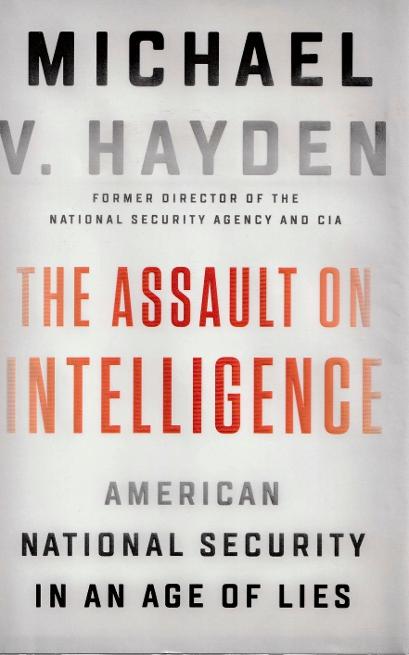
Below are two very different reads: Brooks's is on the developing Hebrew monarchy as exemplified by King, David; Bizony's is on the insights on quantum physics as they developed over the past two centuries. Each book is interesting in its own way.
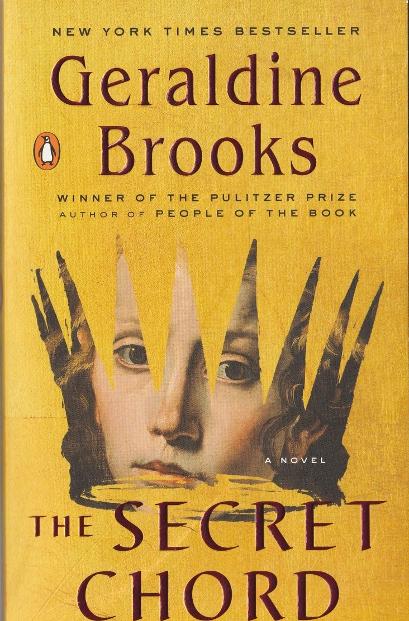
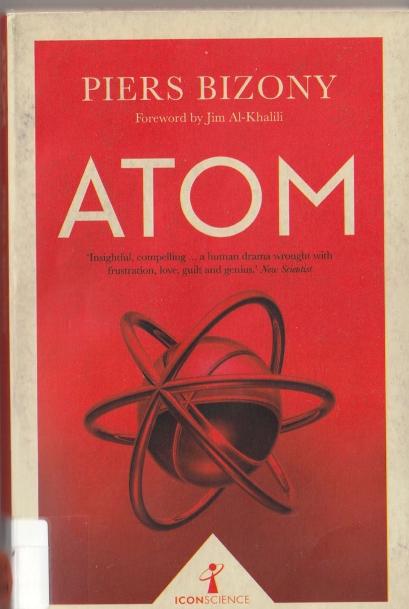
October 19, 2018. The two books below just came out. Both offer extraordinary insights. Read them both, or at least read reviews on amazon.com. If you want to know more about either book, peruse my News Log page; you'll find a description beneath the hunting story and pictures.
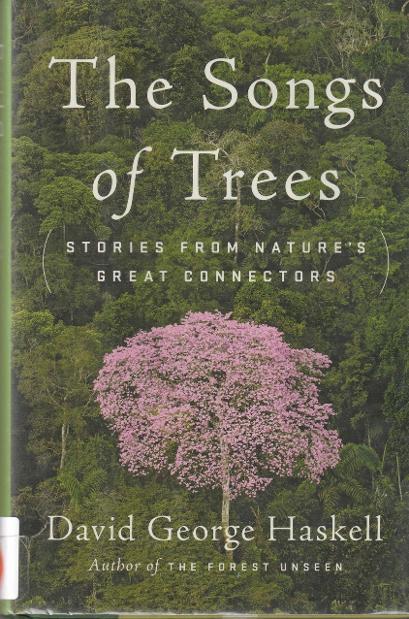
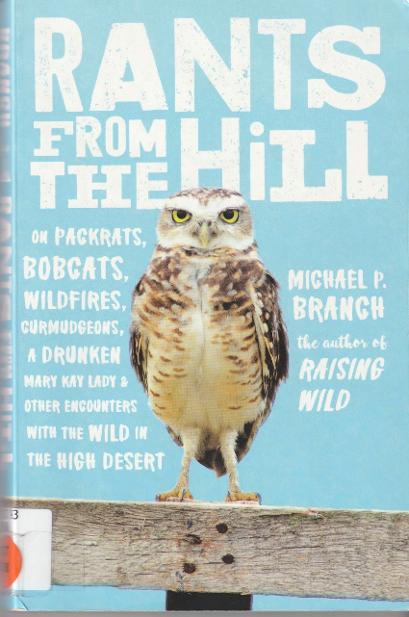
September 2018: In the last few weeks I have been reading these three books: two below, one to the right. I recommend you read them also. Fromm's The Art of Loving was first published fifty years ago and may appear dated to the contemporary reader, though I love it today as I did when I read it then. In lieu of reading the book, in the "Creative Writing Efforts" page you may read the essay I composed that summarizes Fromm's thought.
The book on Dying, Death, and Wisdom below Fromm's is without a doubt the most inspiring and heartwarming exposition on the subject--and I have read a lot of them, seeing as I am getting on in years.
Brittney Cooper's Eloquent Rage is pertinent reading for anyone who aspires to understand the role of black women in today's American culture, society, and family. A must-read on a par with Yvette Johnson's Song and the Silence, see below Cooper's.
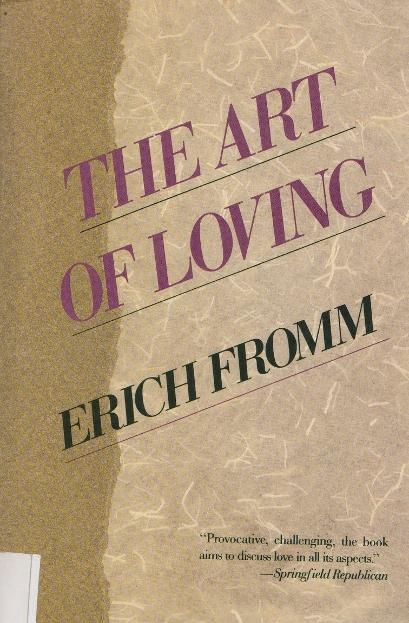
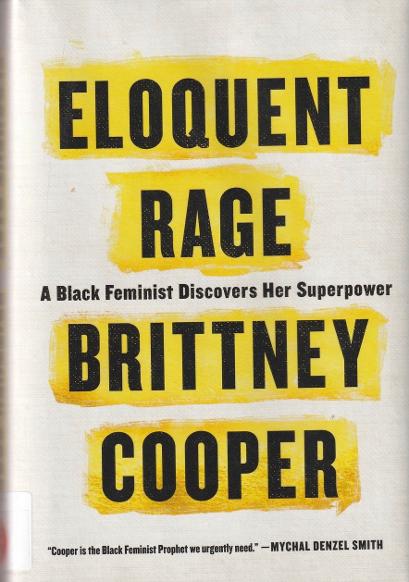
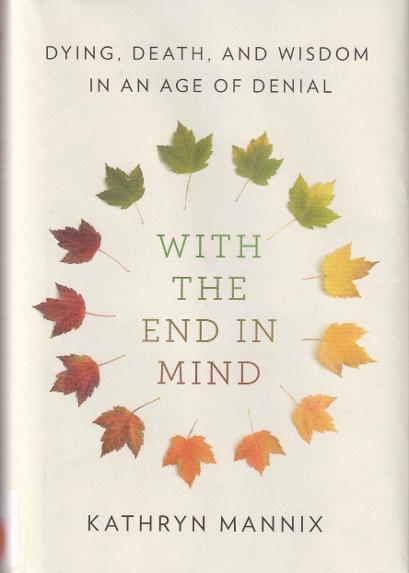
It is mid-May 2018 and I am engaged in memoir writing. I found these two writers very helpful: Annie Proulx because her memoir is set in Wyoming; Yvette Johnson because she bravely shares family trauma rooted in social injustice. Both writers regret parental silence on family dynamics.
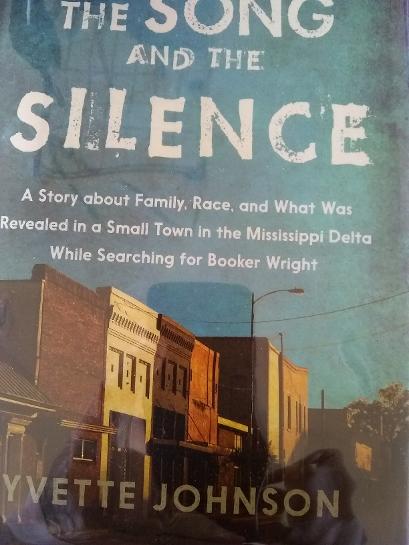
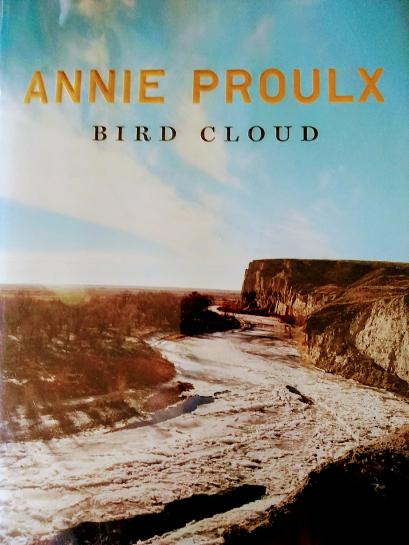
These two books below, Mental Health, Inc. and The Danger Within Us go with the earlier-posted, An American Sickness and Drug Dealer, MD. Absolutely required reading for anyone wishing to stay informed on health issues in the American economy.
The books below are a must-read for anyone wishing to understand 1) The drug culture in the US and 2) the religious culture in Saudi Arabia that yet again forbids women to drive their own cars. The women who defy the "Morality Police" pay dearly for their courage.
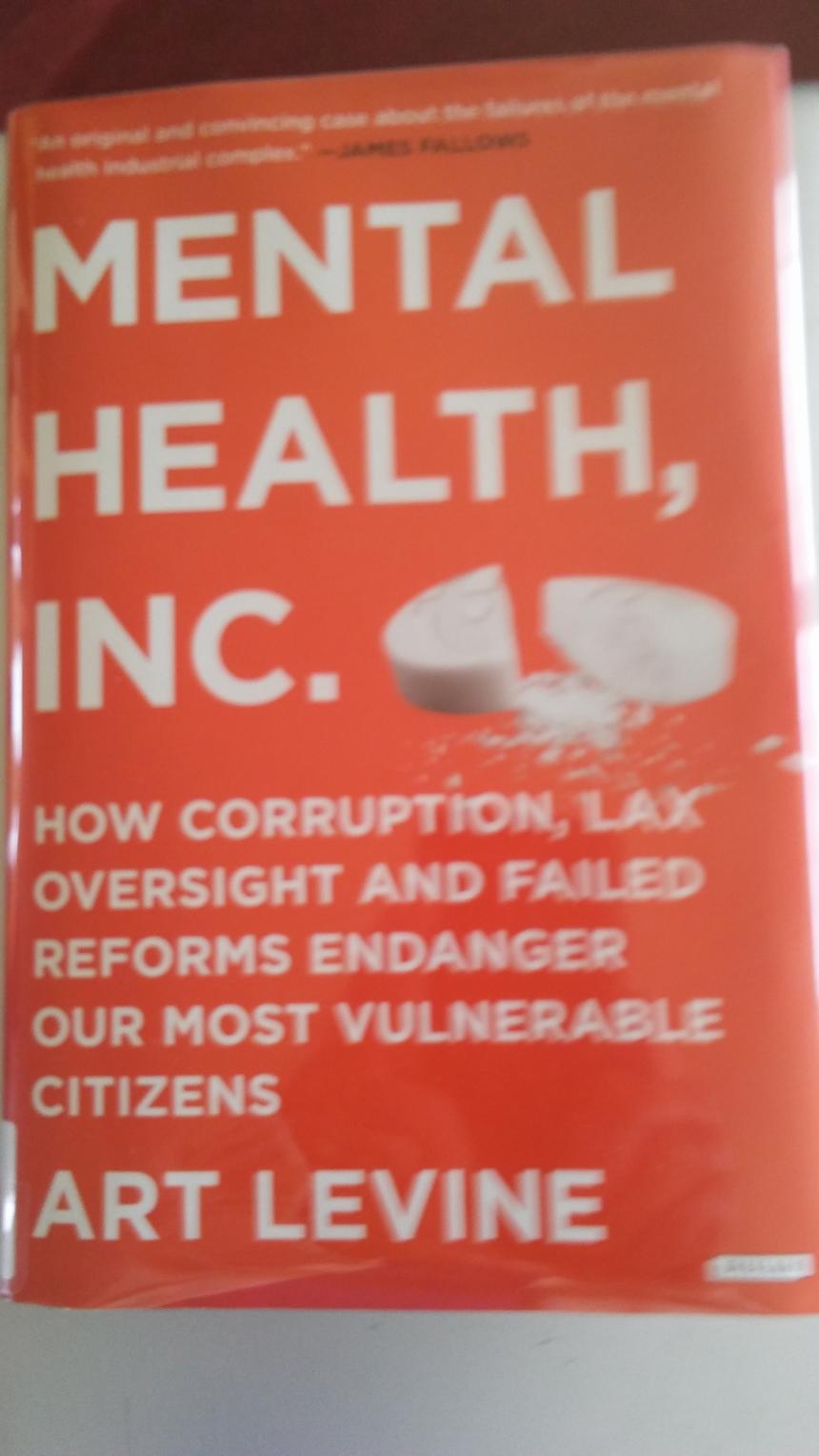
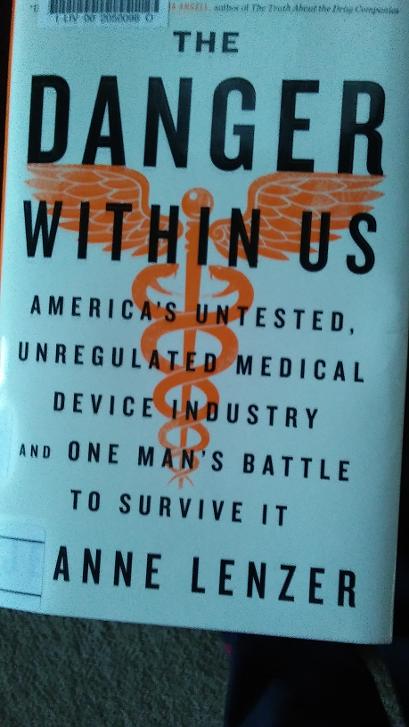
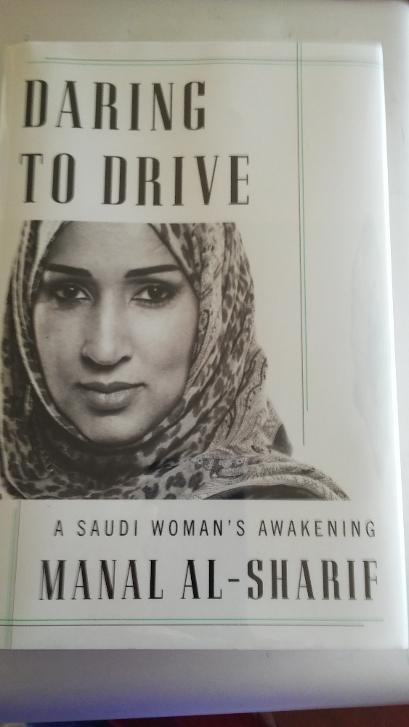
The twononfiction books below, checked out from the Livermore, CA, library, are discussed in the "News Log" page of this website. I highly recommend both to your reading. Each author has impeccable credetials, and the books are informative--though Niall Ferguson sometimes goes off on tangents, which makes the book into a tome. Luke Harding's is lively--you'll try to read it in one setting, though that's not quite possible.
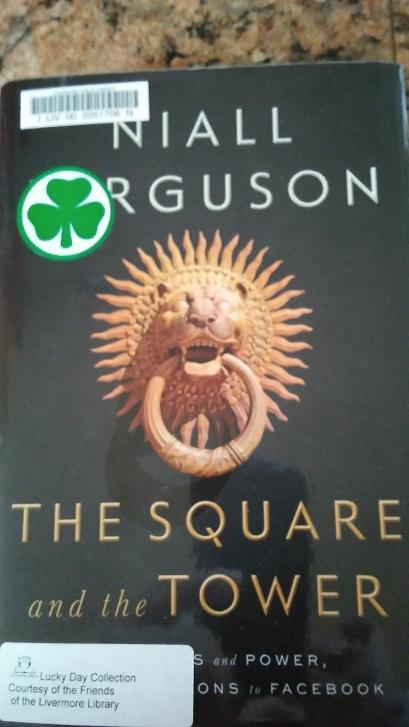
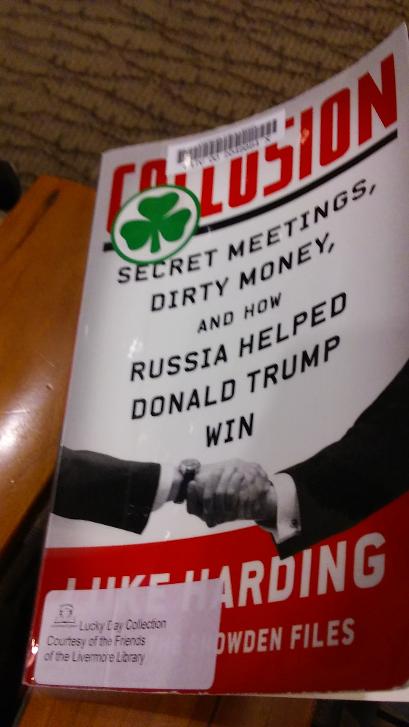
This book on the importance of sufficient healthful sleep is a fantastic treasure that just recently appeared on the market. It discusses the problems of insomnia that plagues some family members I know. It even discusses narcolepsy, a brain disorder that affects my youngest son. Walker discusses the condition in accessible prose yet providing the latest in scientific research that's out there. I am deeply grateful to have stumbled upon this important contribution to our understanding of the mysteries of dreams, REM sleep, and other vital information. You, too, should read this book--it'll teach you things about yourself you never knew.
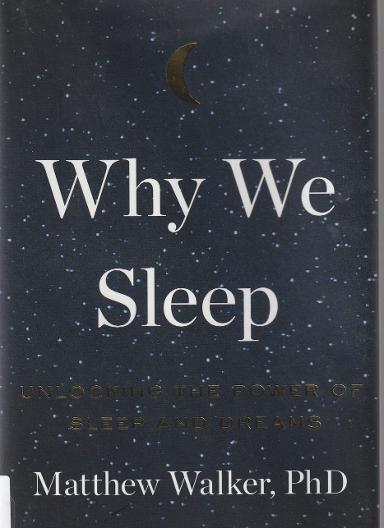
The two books below are required reading for anyone wishing to understand African American culture before and during the Civil Rights struggle. Actually, Henry Louis Gates goes further than that. Already his title, derived from Wallace Stevens's poem, "Thirteen Ways of Looking at a Blackbird," alerts readers that they are in for an erudite yet humorous treat. The men whose lives he examines, from Ralph Ellison to James Baldwin to Harry Delafonte, come to life in interesting, informative sketches. A must-read!
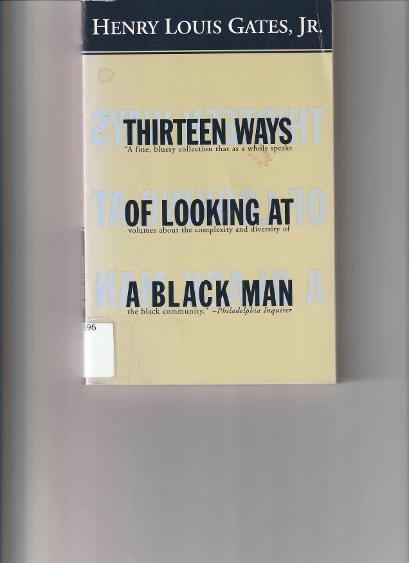
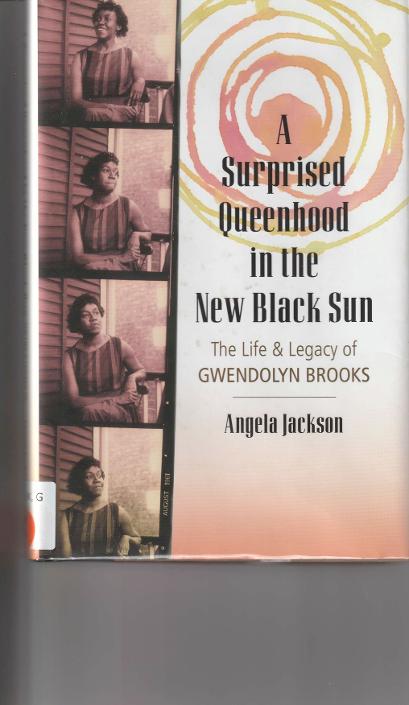
When you read these two books in succession you will gain an understanding of America as viewedat home and abroad. I recommend augmenting that reading with the book on American economic inequality and the disappearance of the middle class--see Sitaraman, further below.
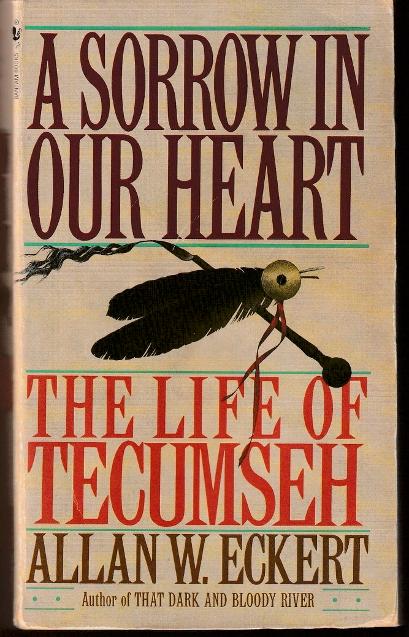
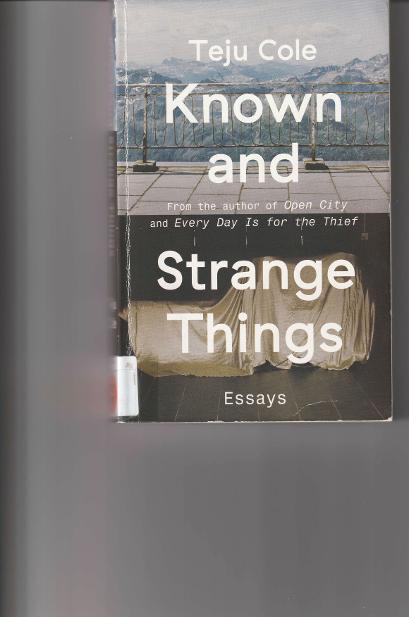
Sitaraman's study examines the disappearance of the American middle-class in terms of the constitution. He contrasts the US constitution, which he says was built on the premise of a lasting middle class, with "class-war" constitutions such as that of Rome, where a society evolved that stratified members into the super rich and the abjectly poor. However, our constitution was based on the premise of a lasting agrarian economy. When society changed into an industrial one, it made possible corporate overreach. Nevertheless this was kept in check by forward-looking presidents of either party: "trust-busting" Theodore Roosevelt and the New Dealers of Franklin D. Roosevelt. Unfortunately since the 1970s a different ideology has prevailed, largely through corporate financing of elections.
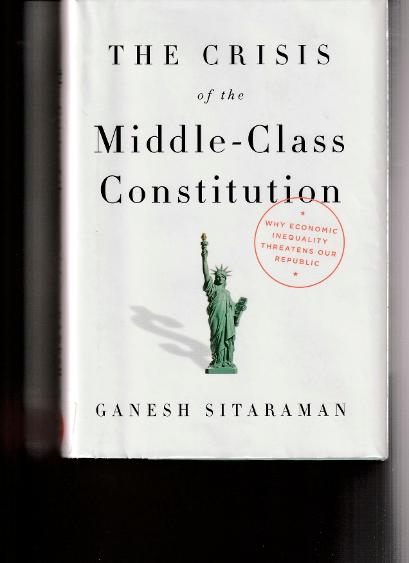
Both the North Korea book and the book about Isaac's hurricane are upsetting to read. The former account shows the extent to which North Korean propaganda induces North Koreans to despise Americans; unfortunately, the narrative suffers from the writer's unrelenting sarcasm. The tale of the hurricane that devastated Galveston in 1900 makes us rethink everything we've ever been told about the increasing dangers of rising sea levels: the dangers have been there all along--with thousands, sometimes millions of hapless residents perishing unawares.
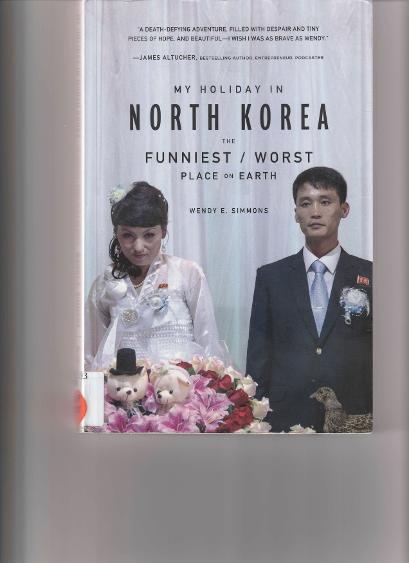
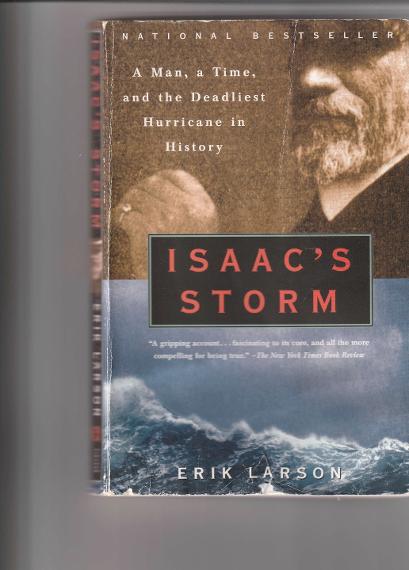
The book whose dust-cover image is to the left is an extraordinary read. It provides not only the biography of Hermann Rorschach but also an overview of the development of the psychoanalytic movement from Freud on down. Formerly unknown: Jung sowing discord between Rorschach and Freud.
Great excerpt about the Nuremberg Nazis before trial, tested with IQ tests and Rorschach.
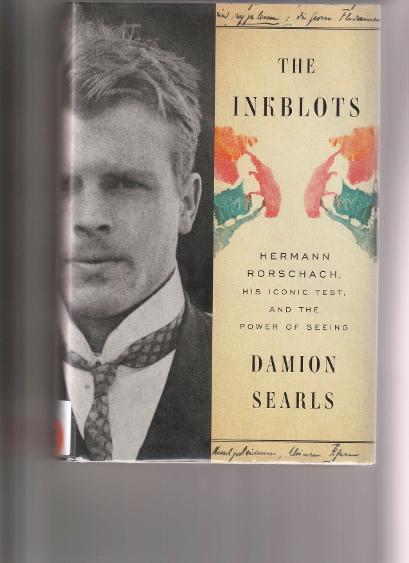
The two books below are must-read for anyone thinking of seeking a medial procedure. If that procedure includes pain management, read Drug Dealer, MD before you commit to any drug treatment. Inform yourself pronto of alternatives to opioids. American Sickness includes appendices displaying websites where consumers may educate themselves.
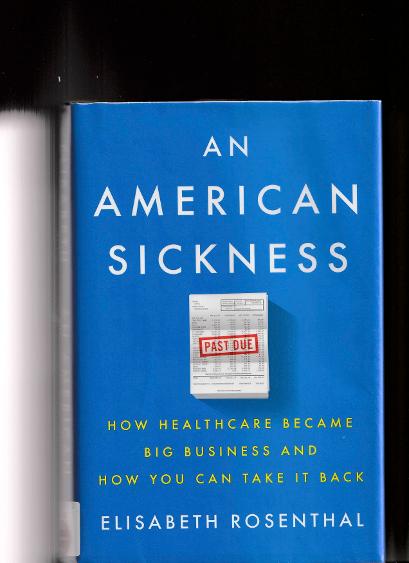
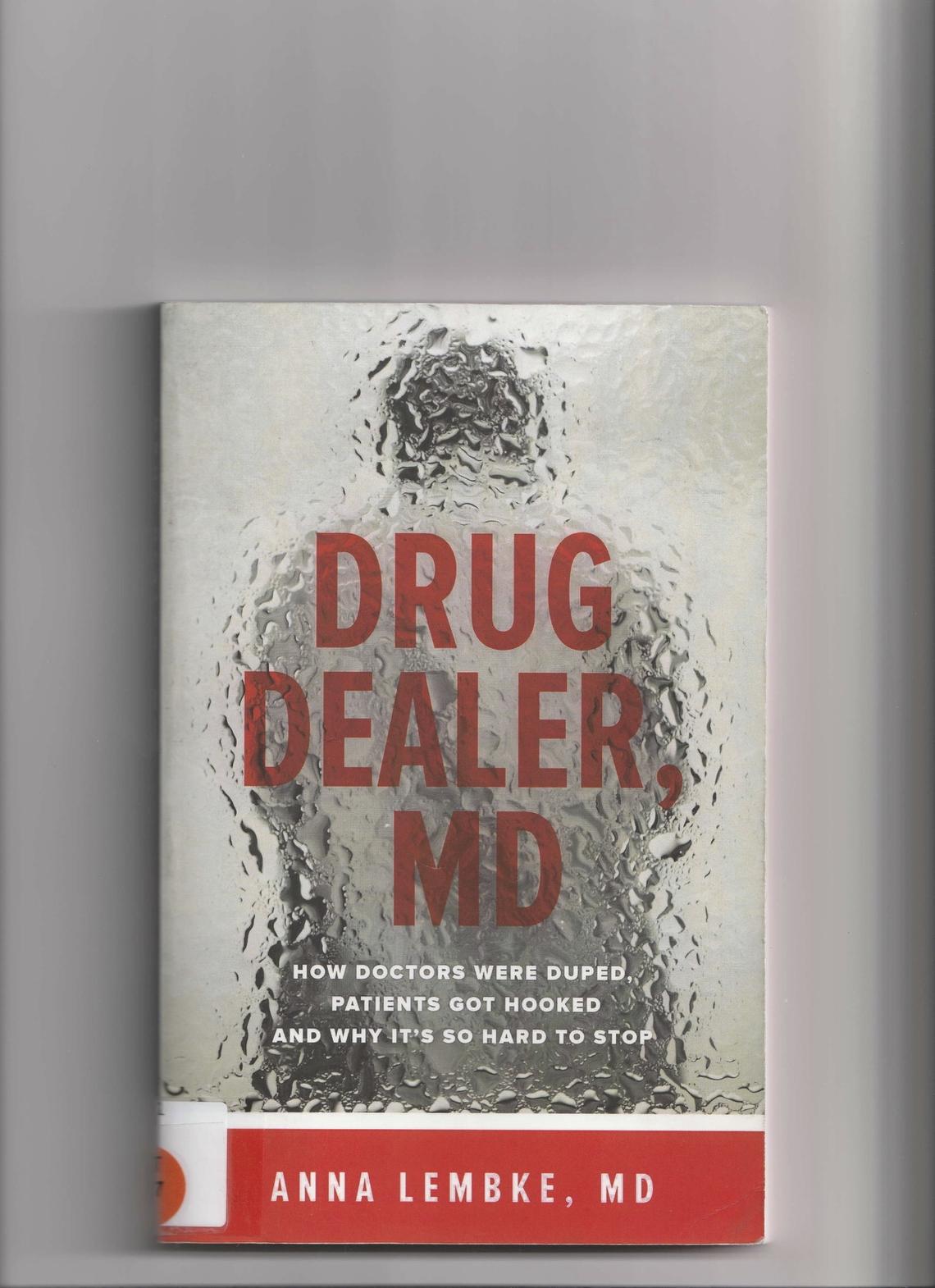
The books below Quantum Story have given rise to my most recent writing. Just beneath them are recent publications on American society and culture. Unbanking is required reading, and so is the story further below, on the Washingtons' attitudes about their slaves.
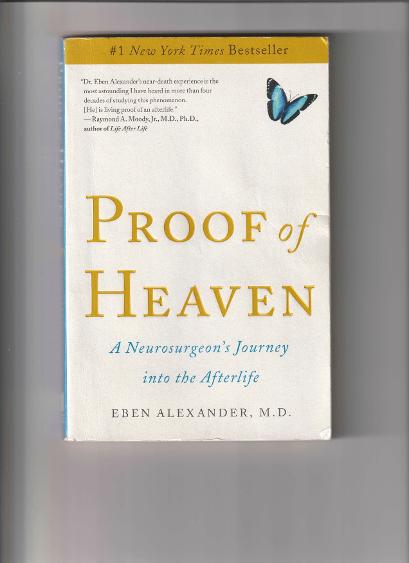
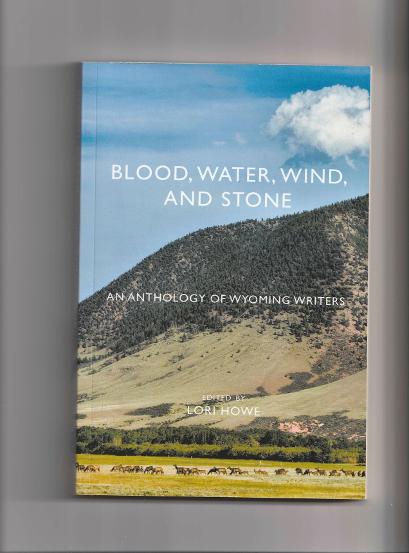
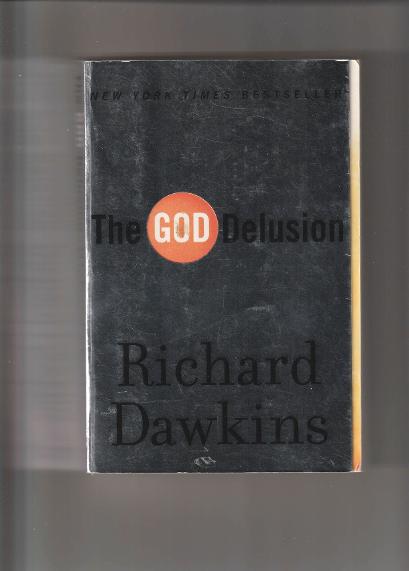
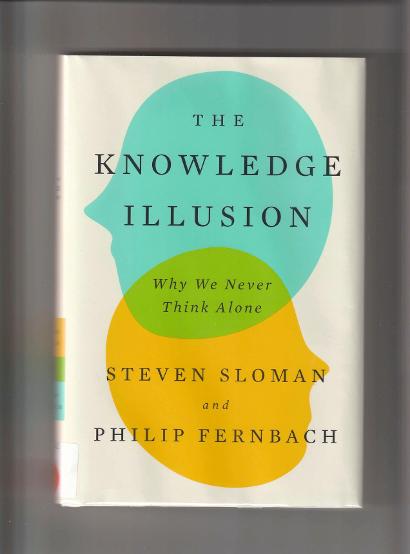
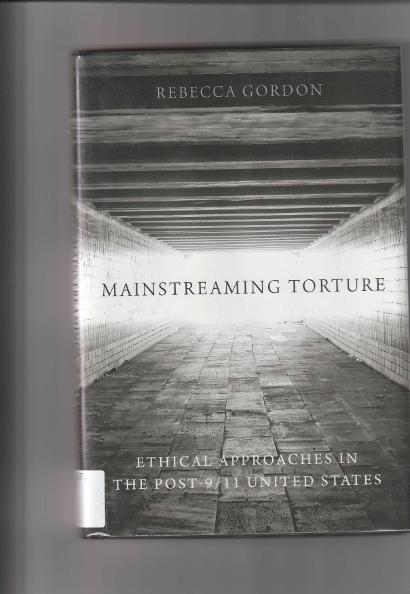
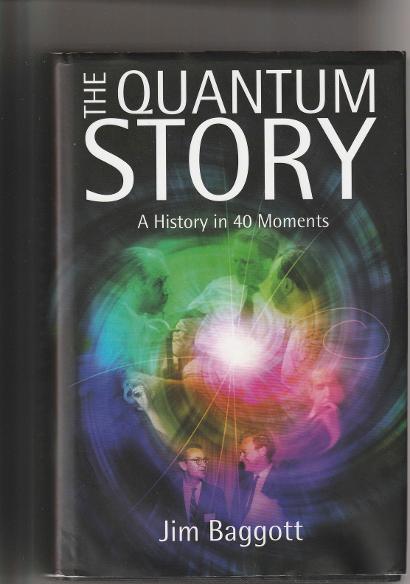
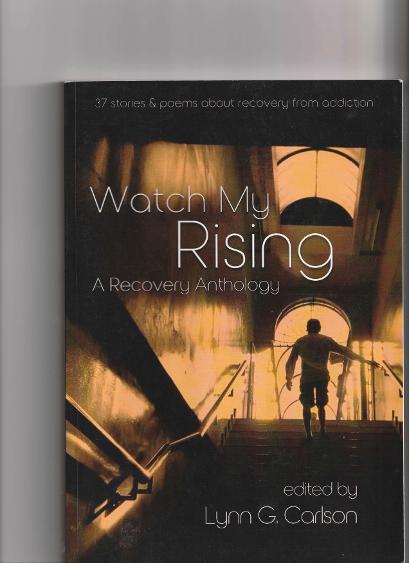

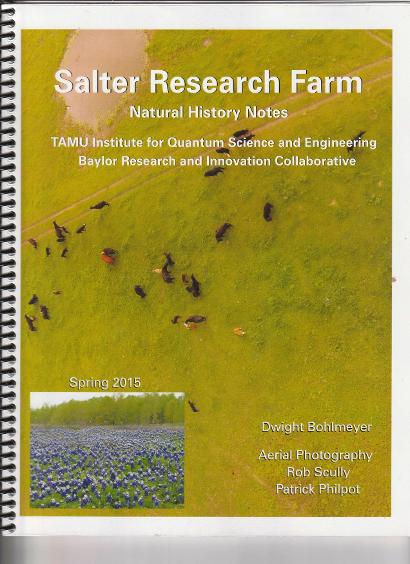
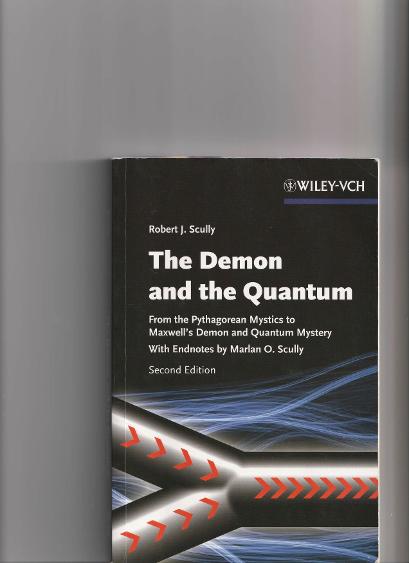
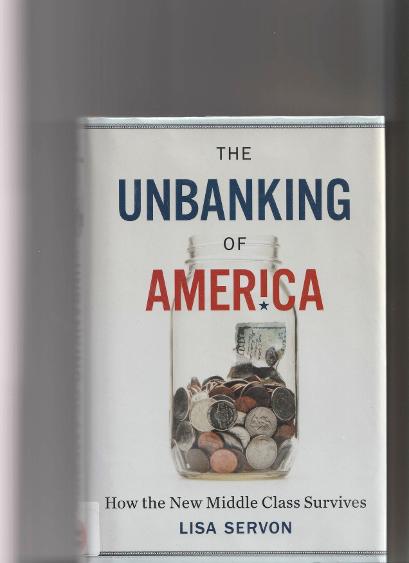
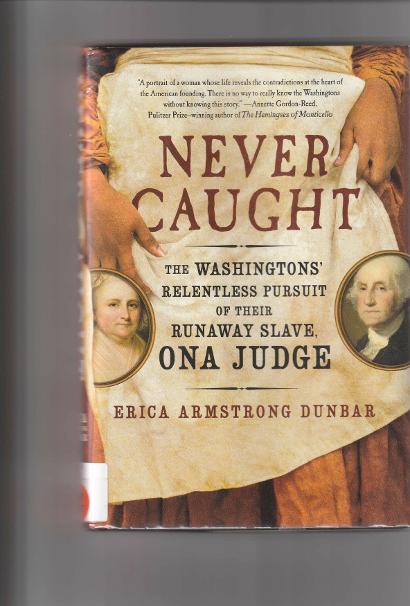
Please read The New Jim Crow, The Invisibles (about slaves in the White House), The Blood of Emmett Till, and Coates's book-length letter to his son.
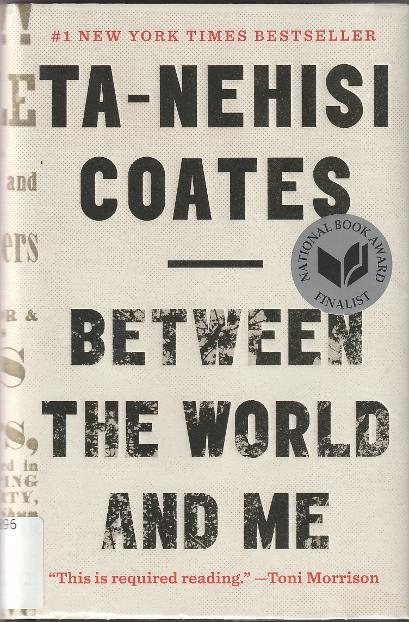
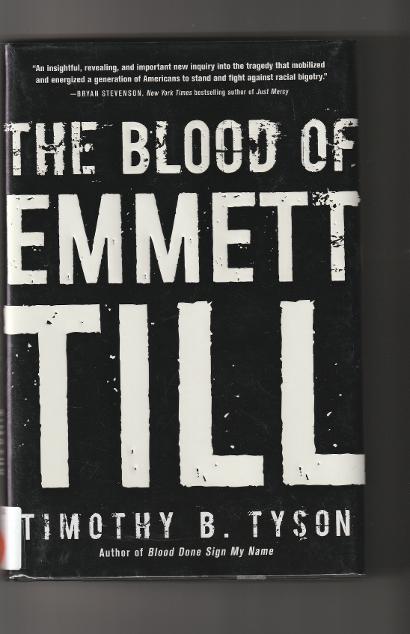
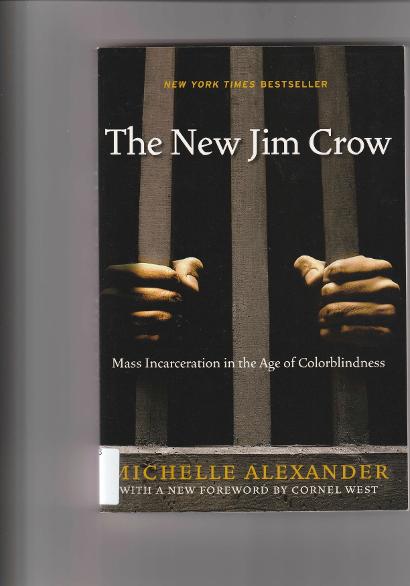
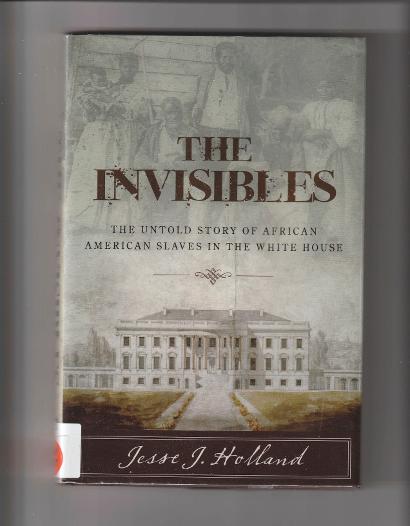
Thinking Fast and Slow is a marvelous exposition on how our brains function, Also a must-read; Malala's story.
